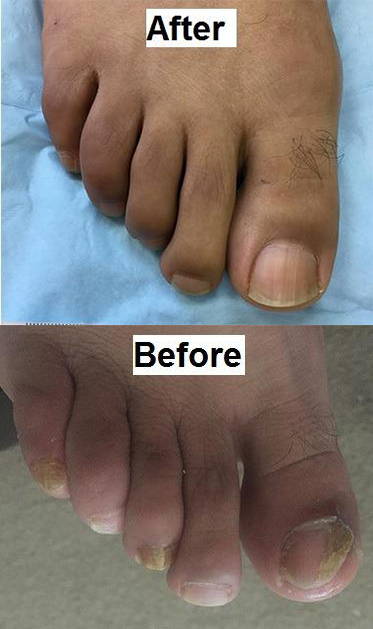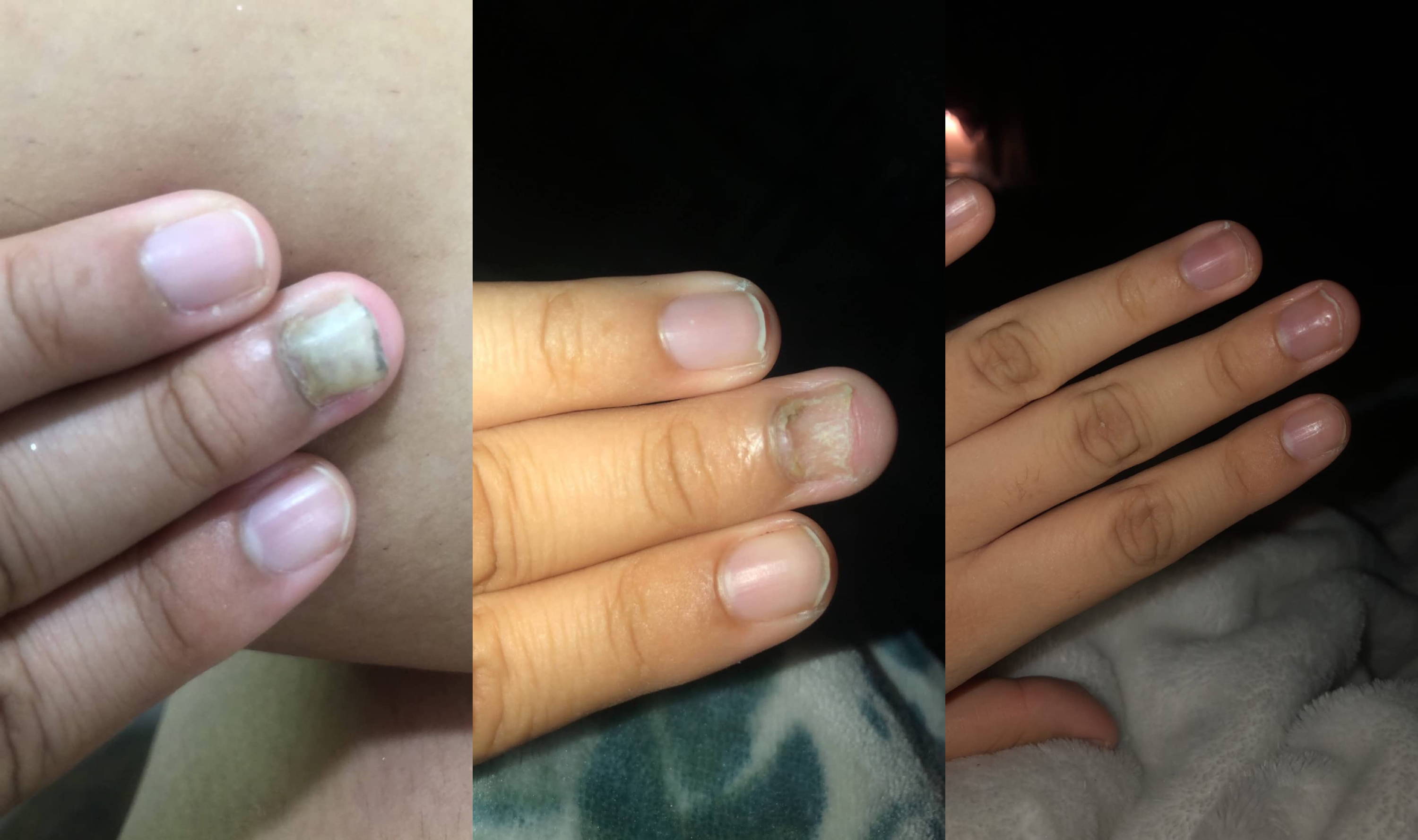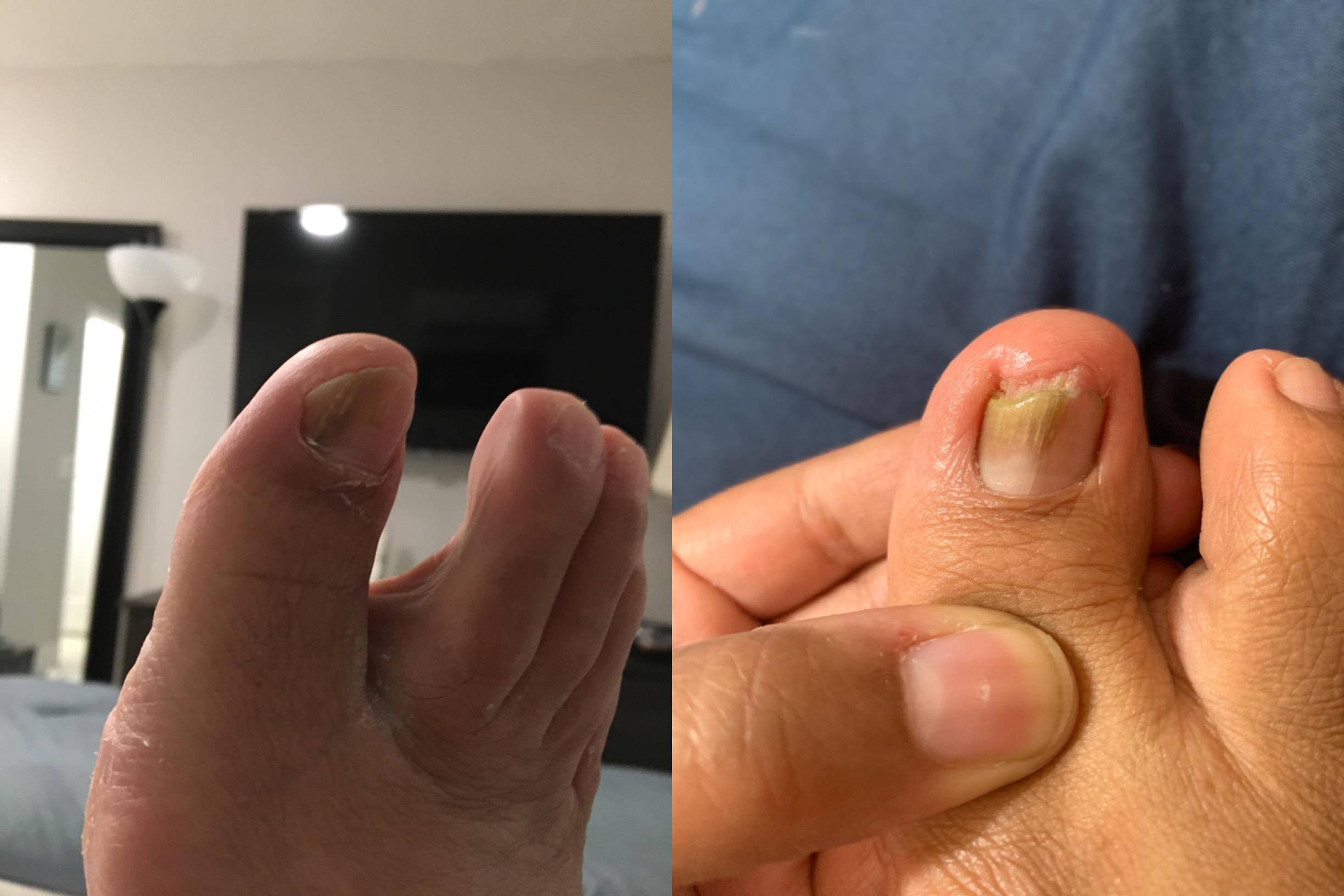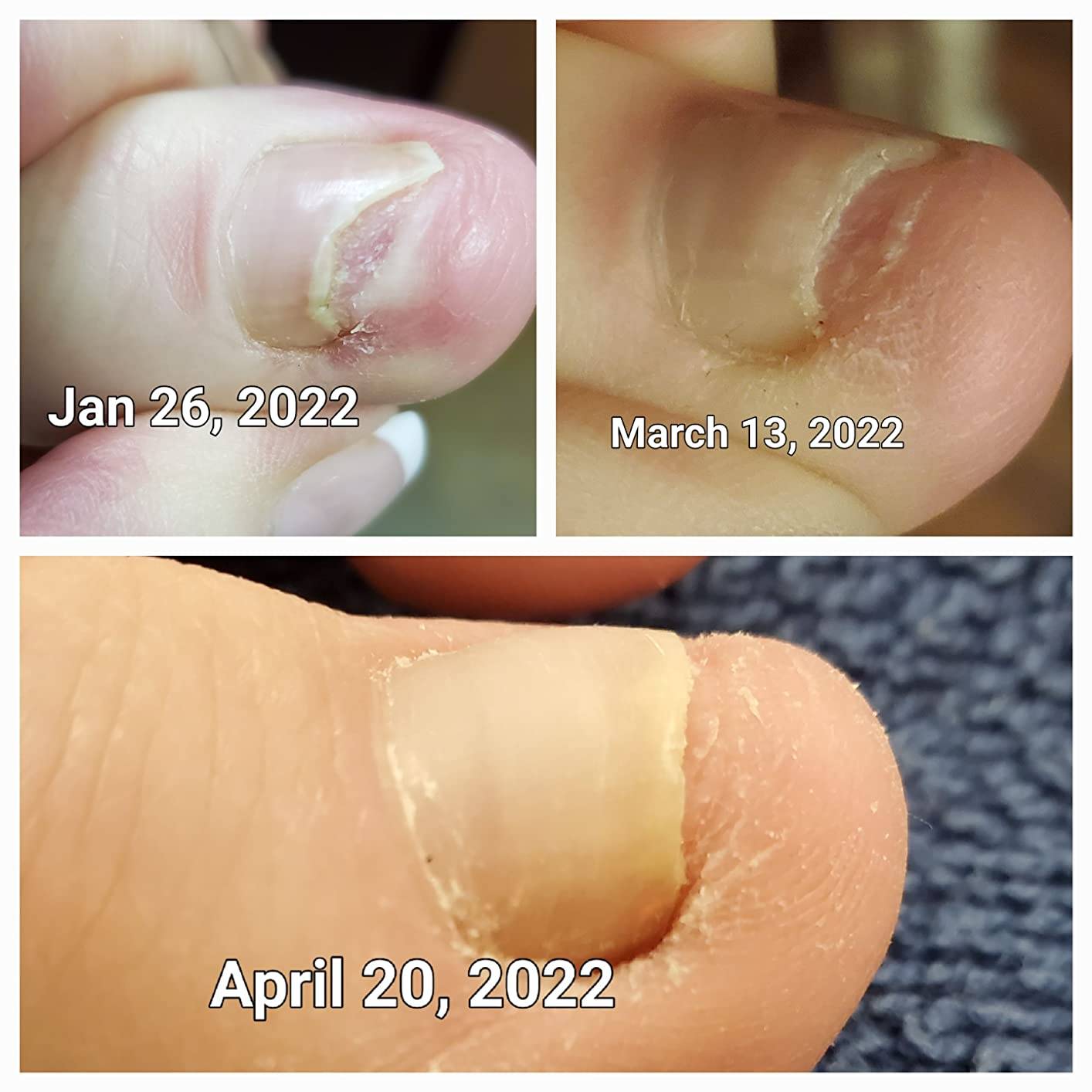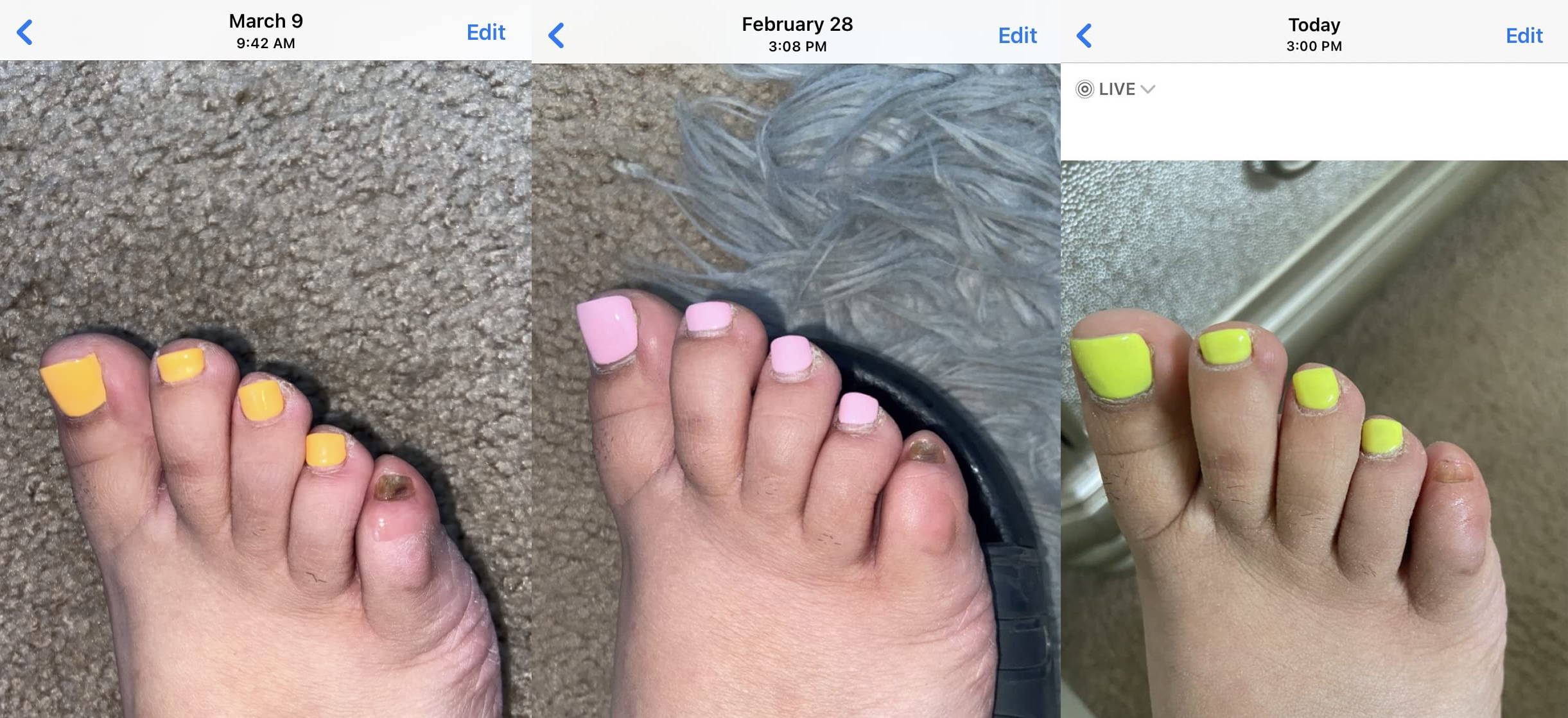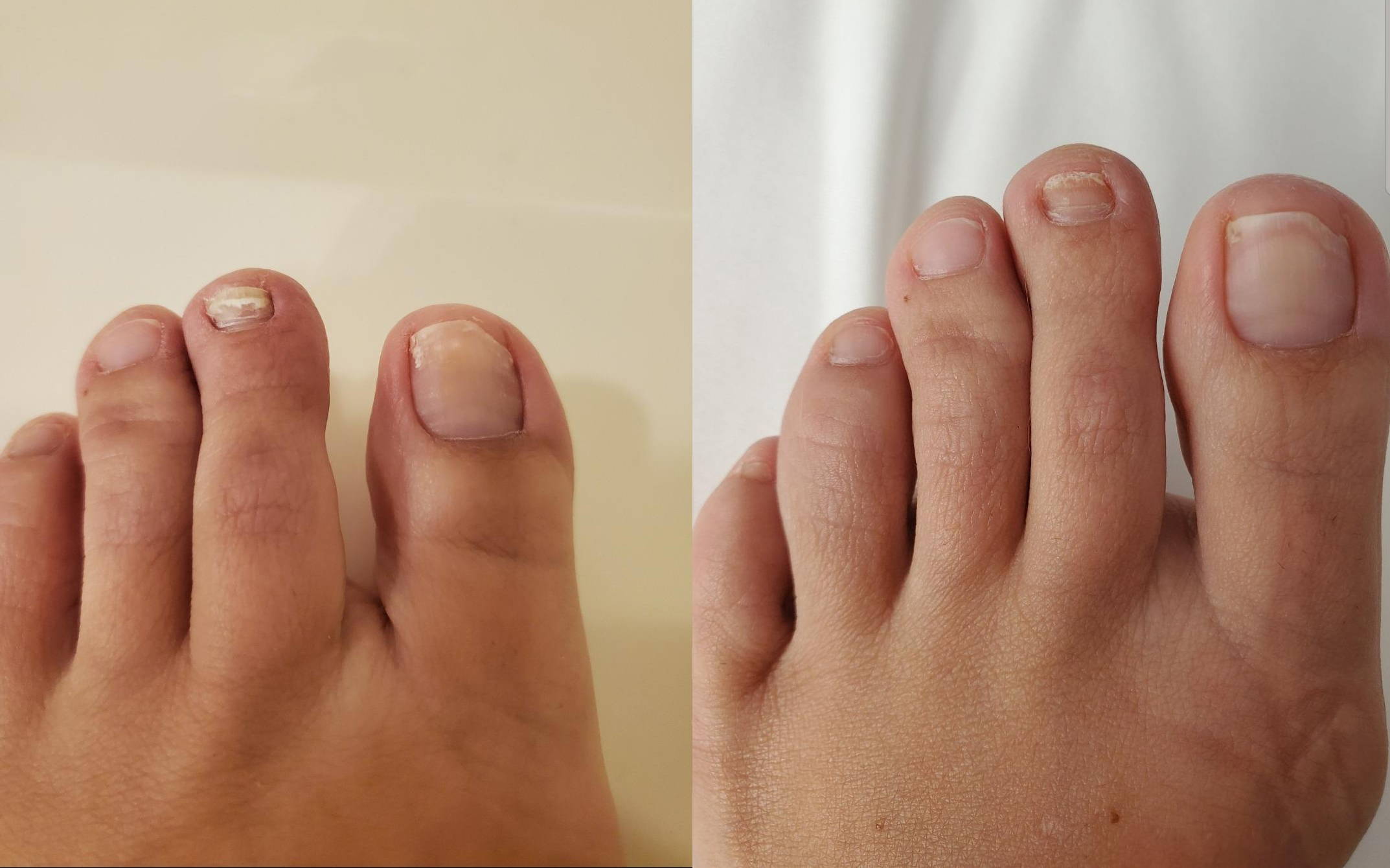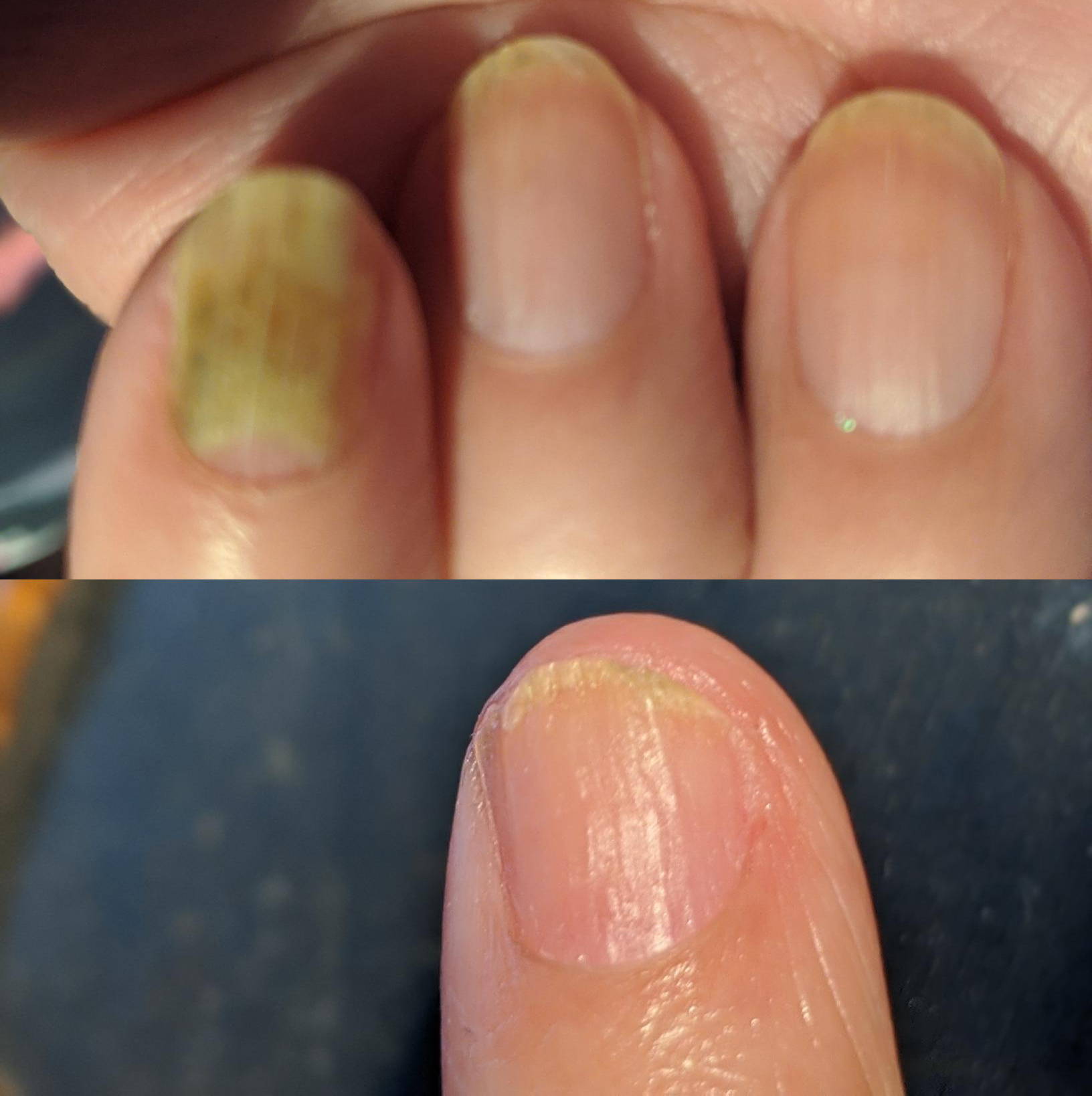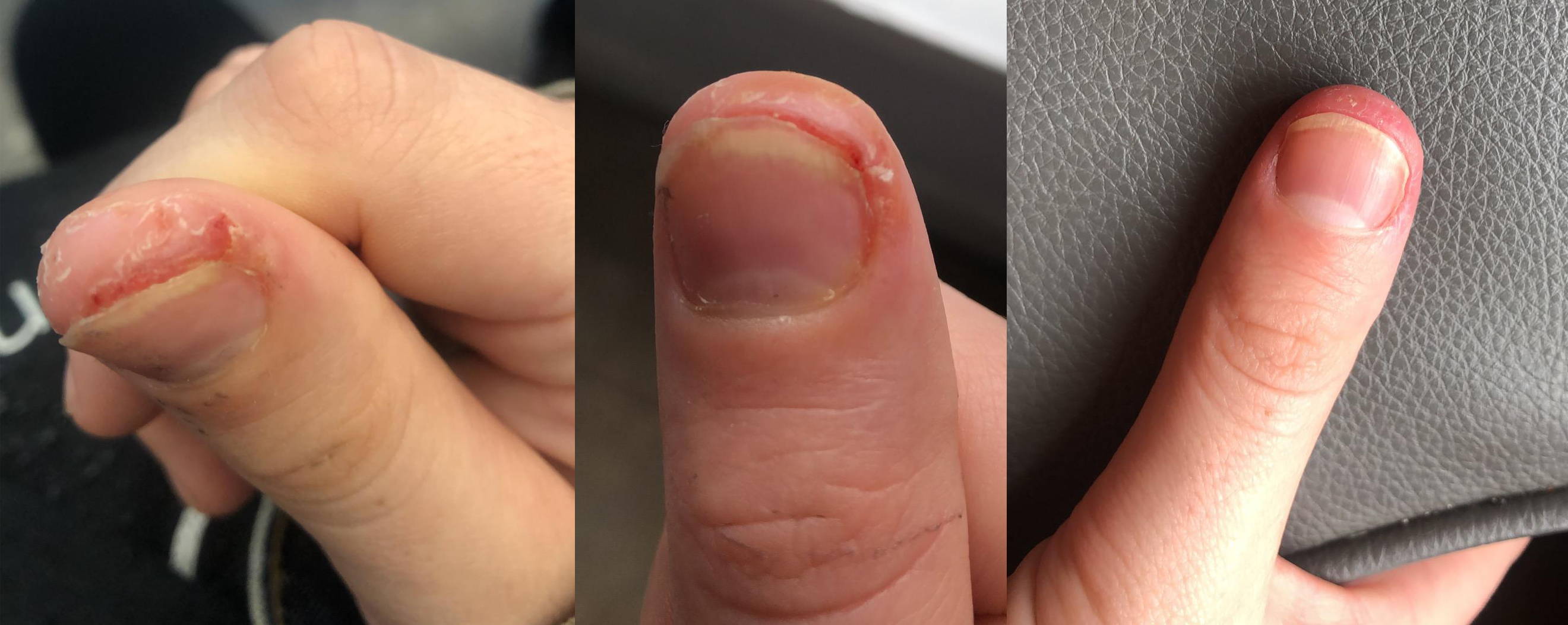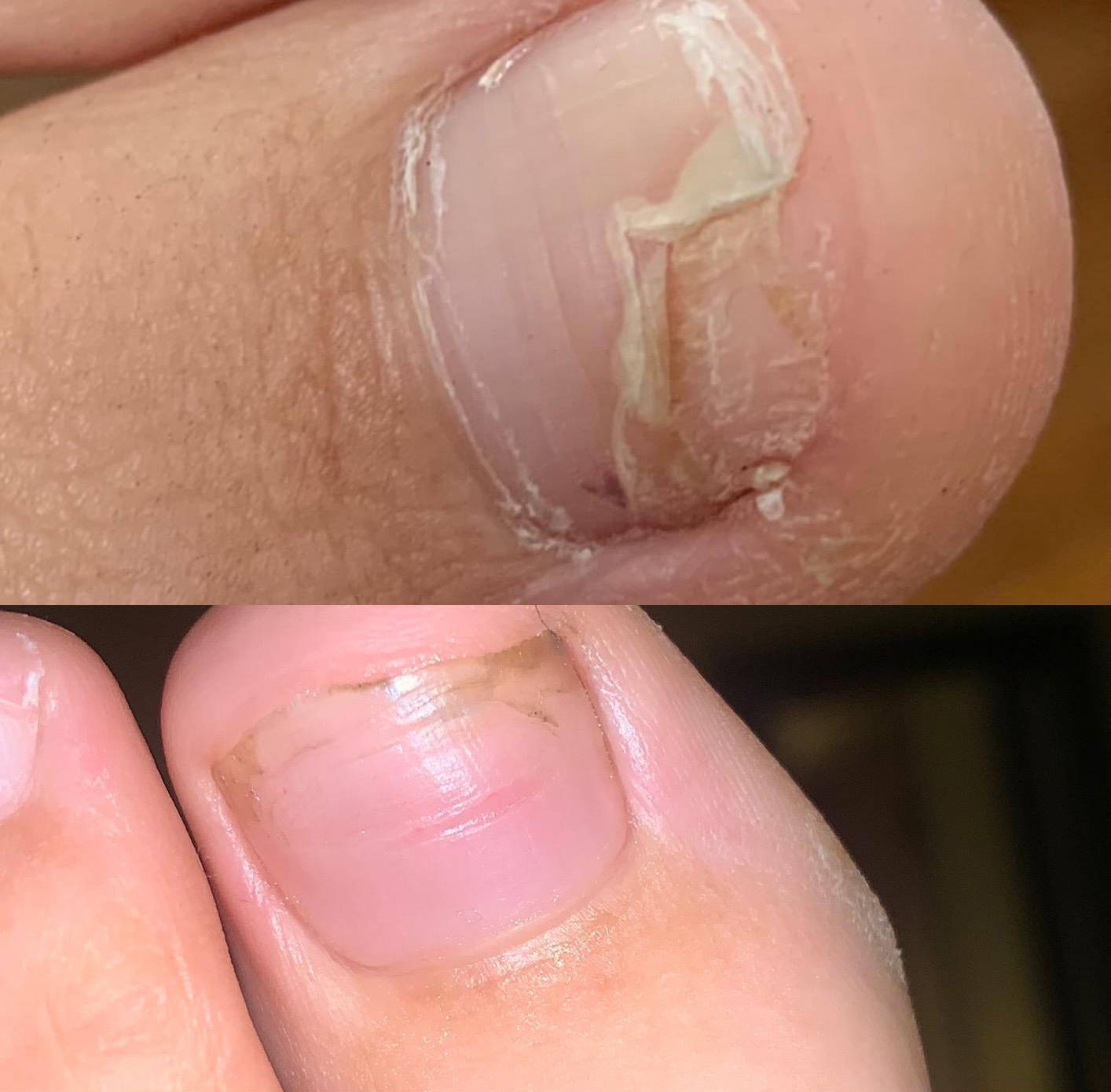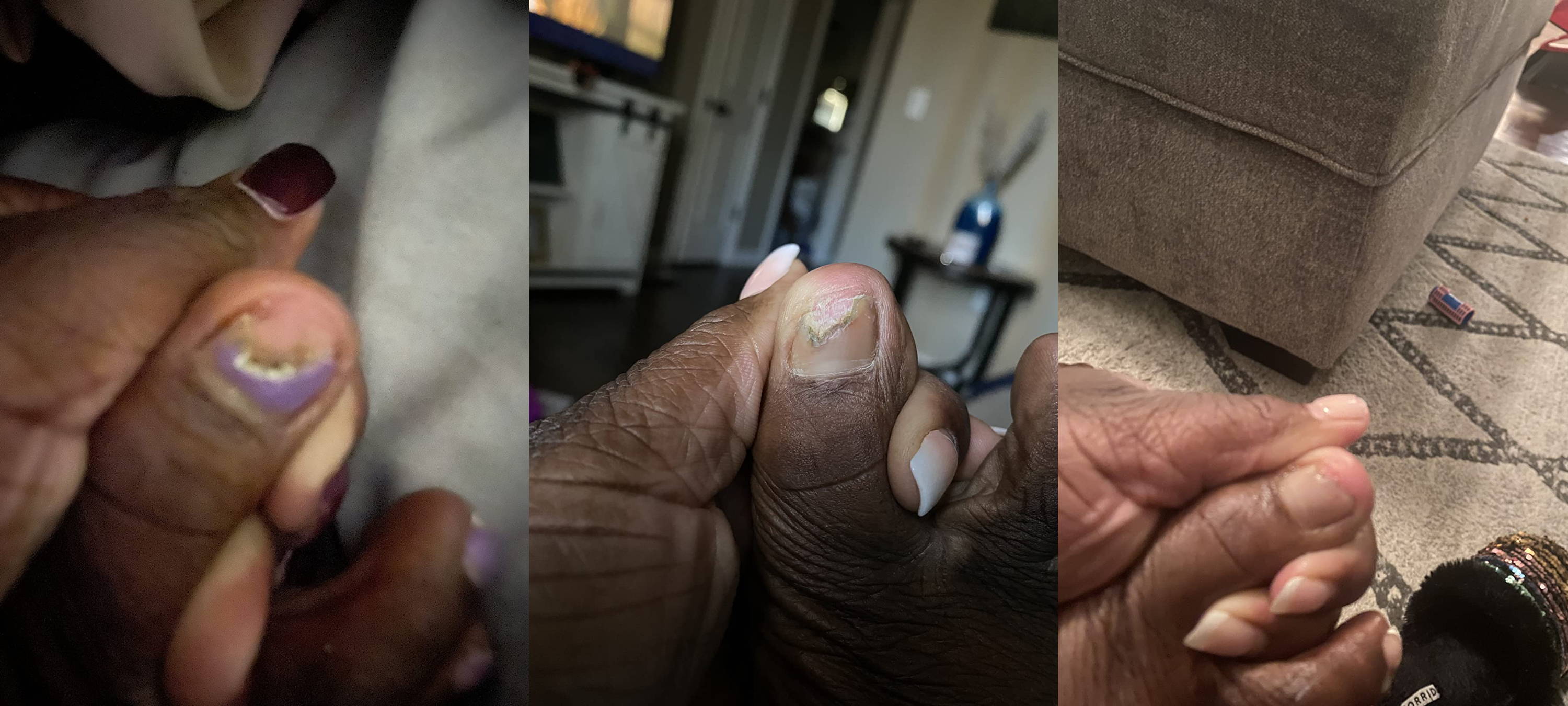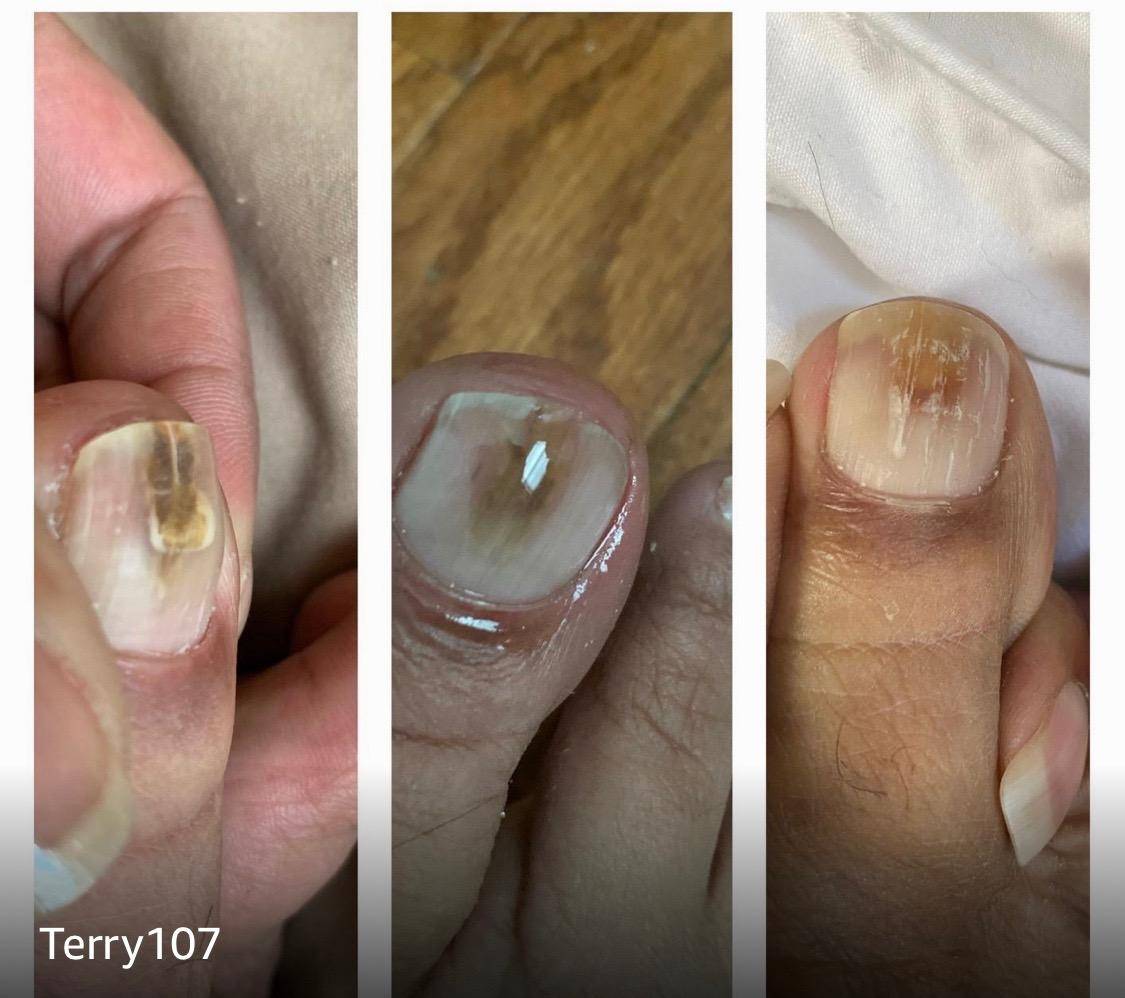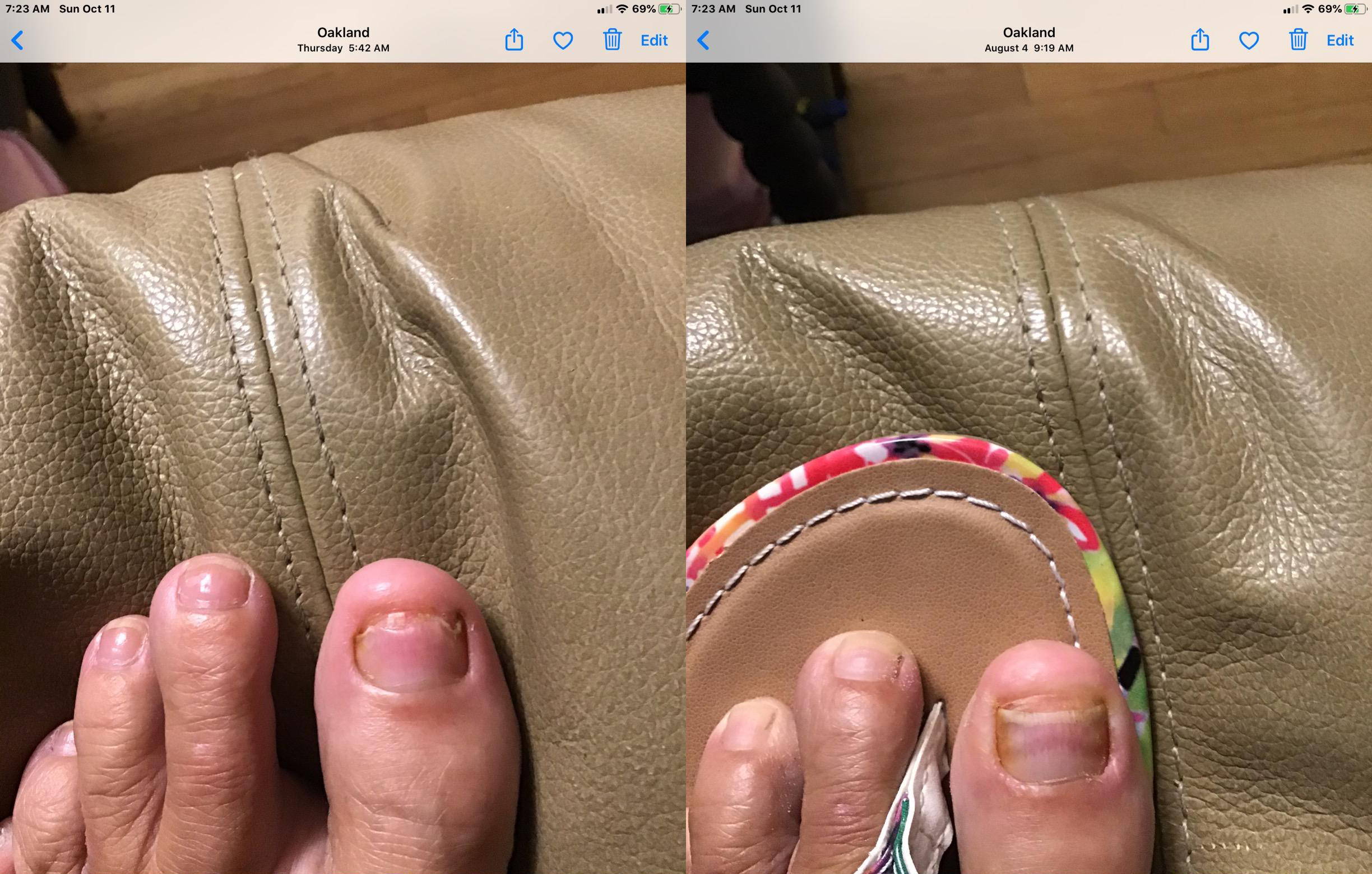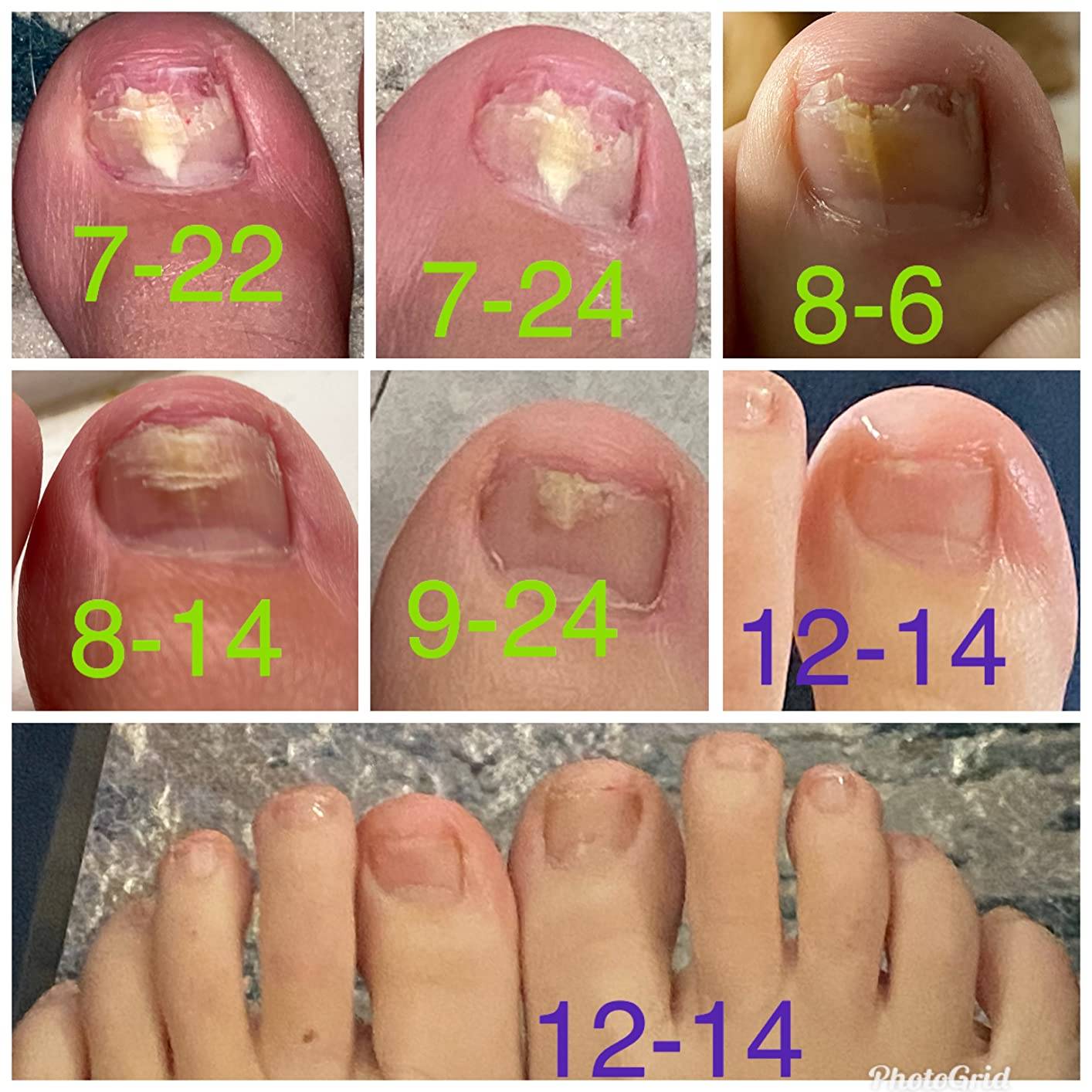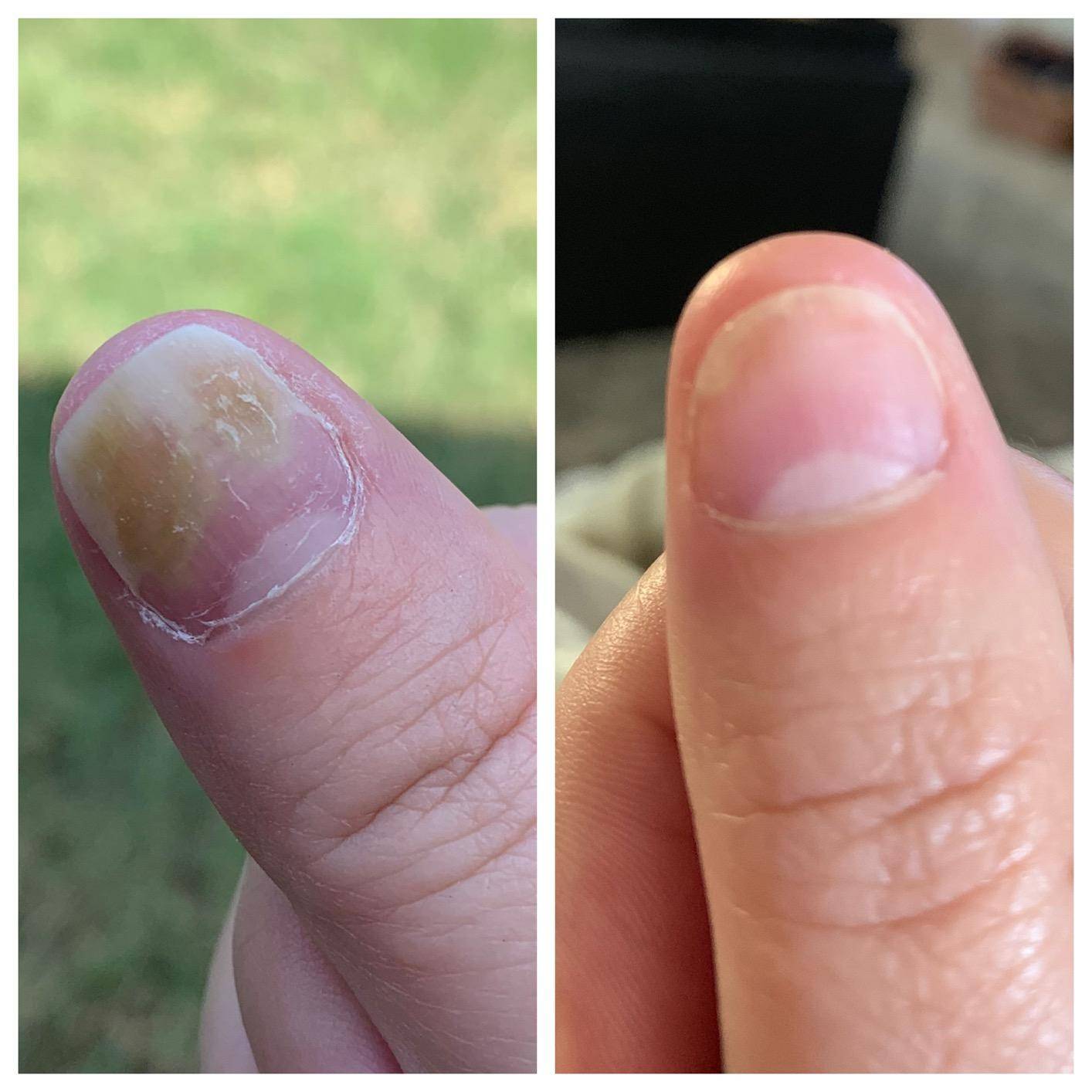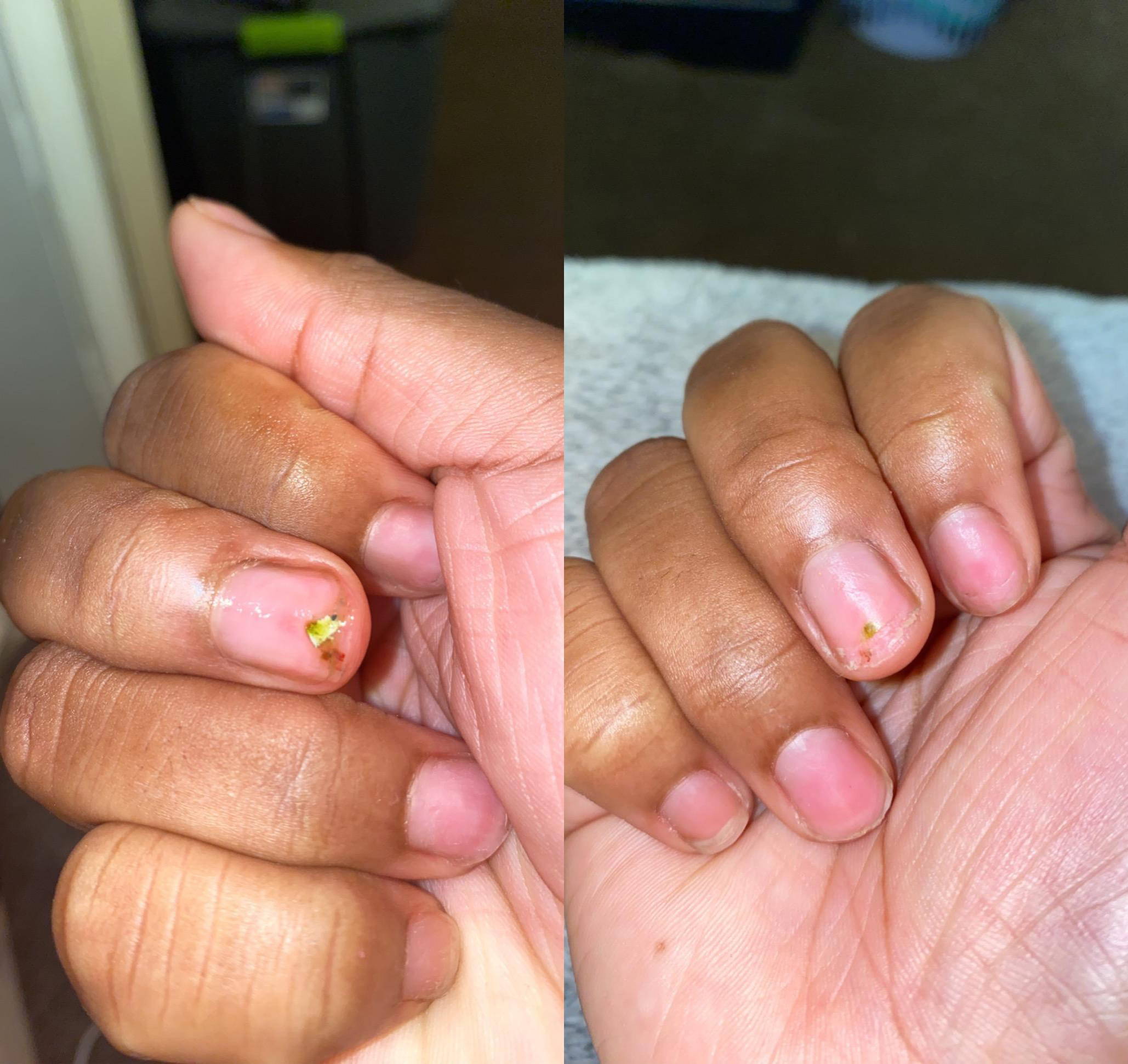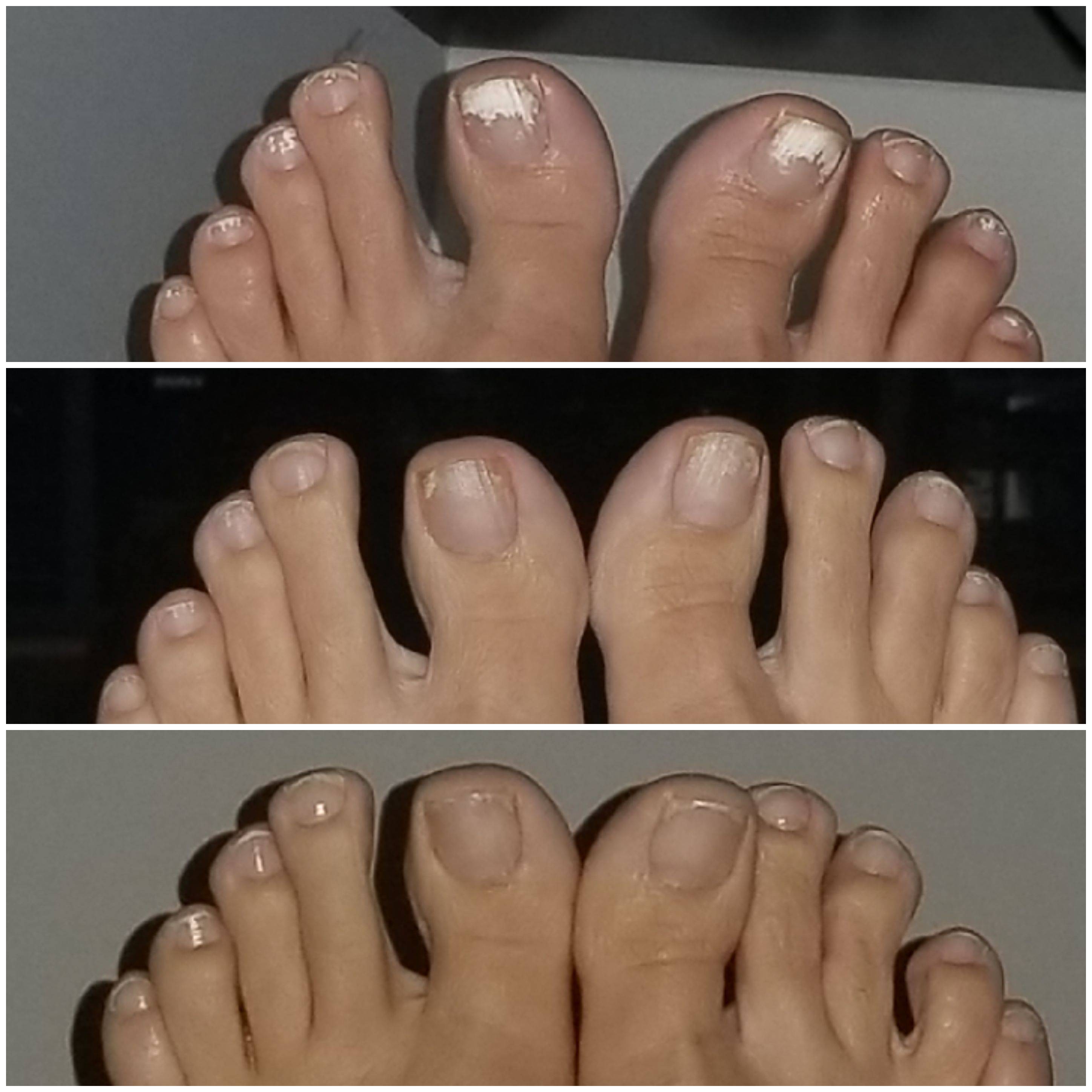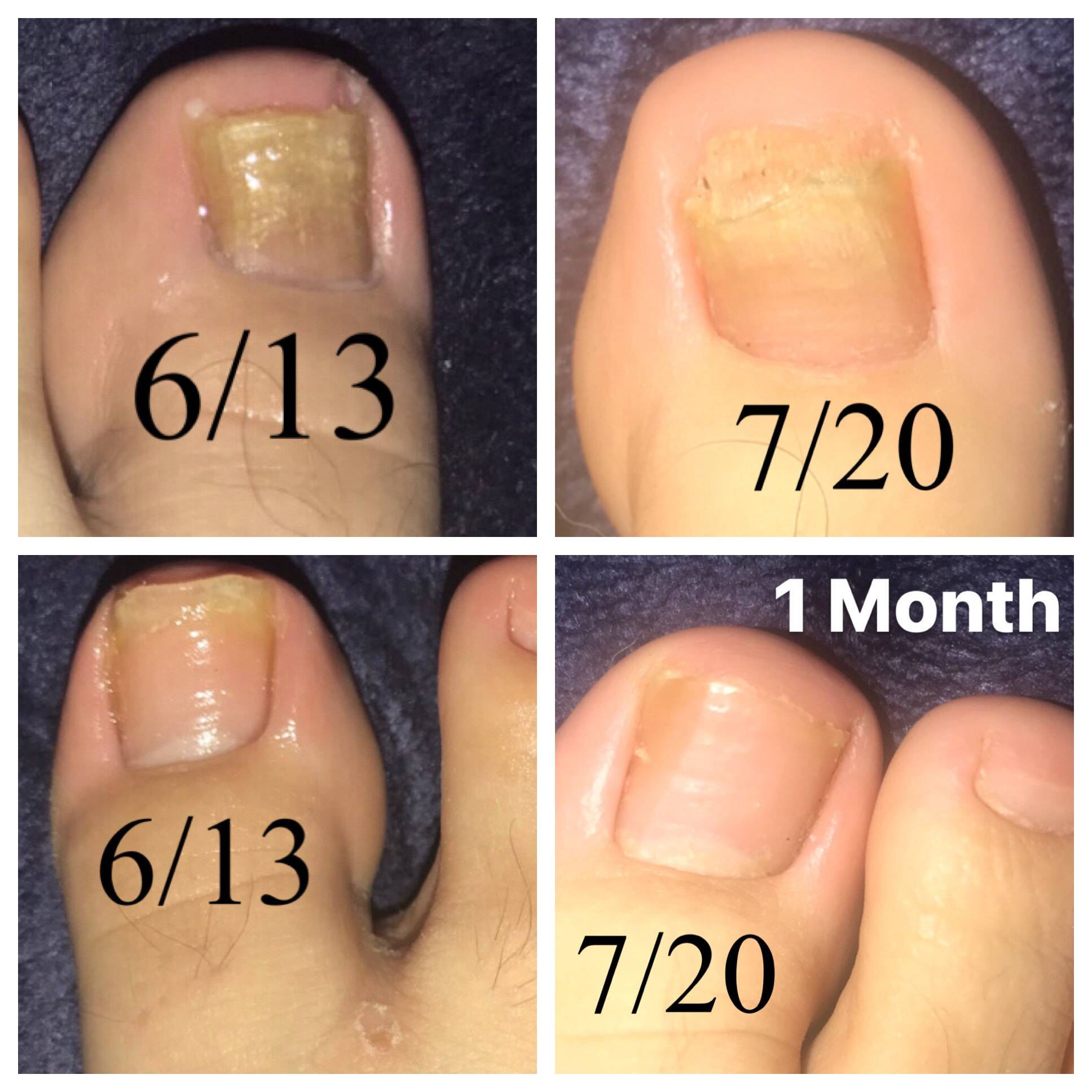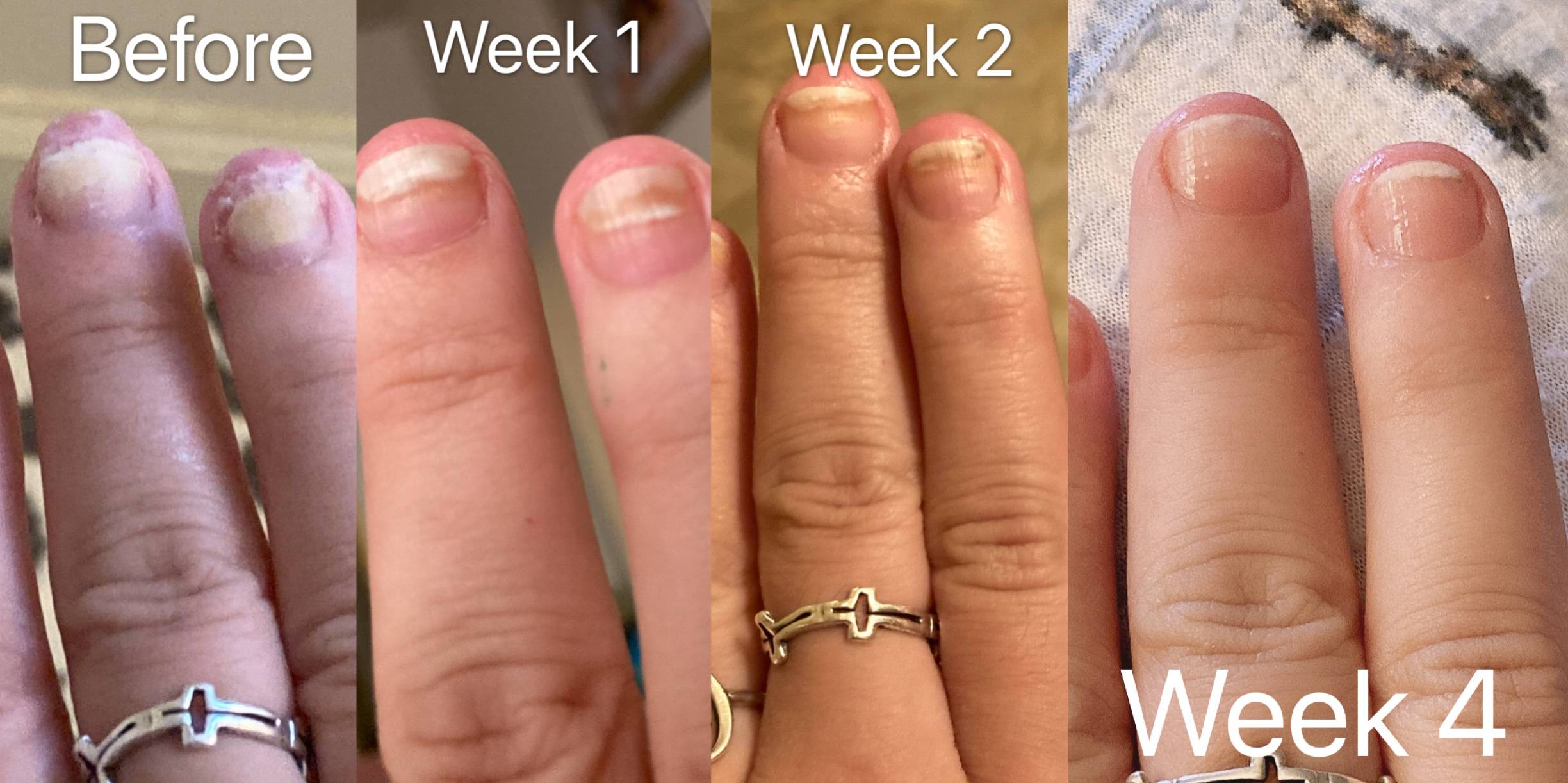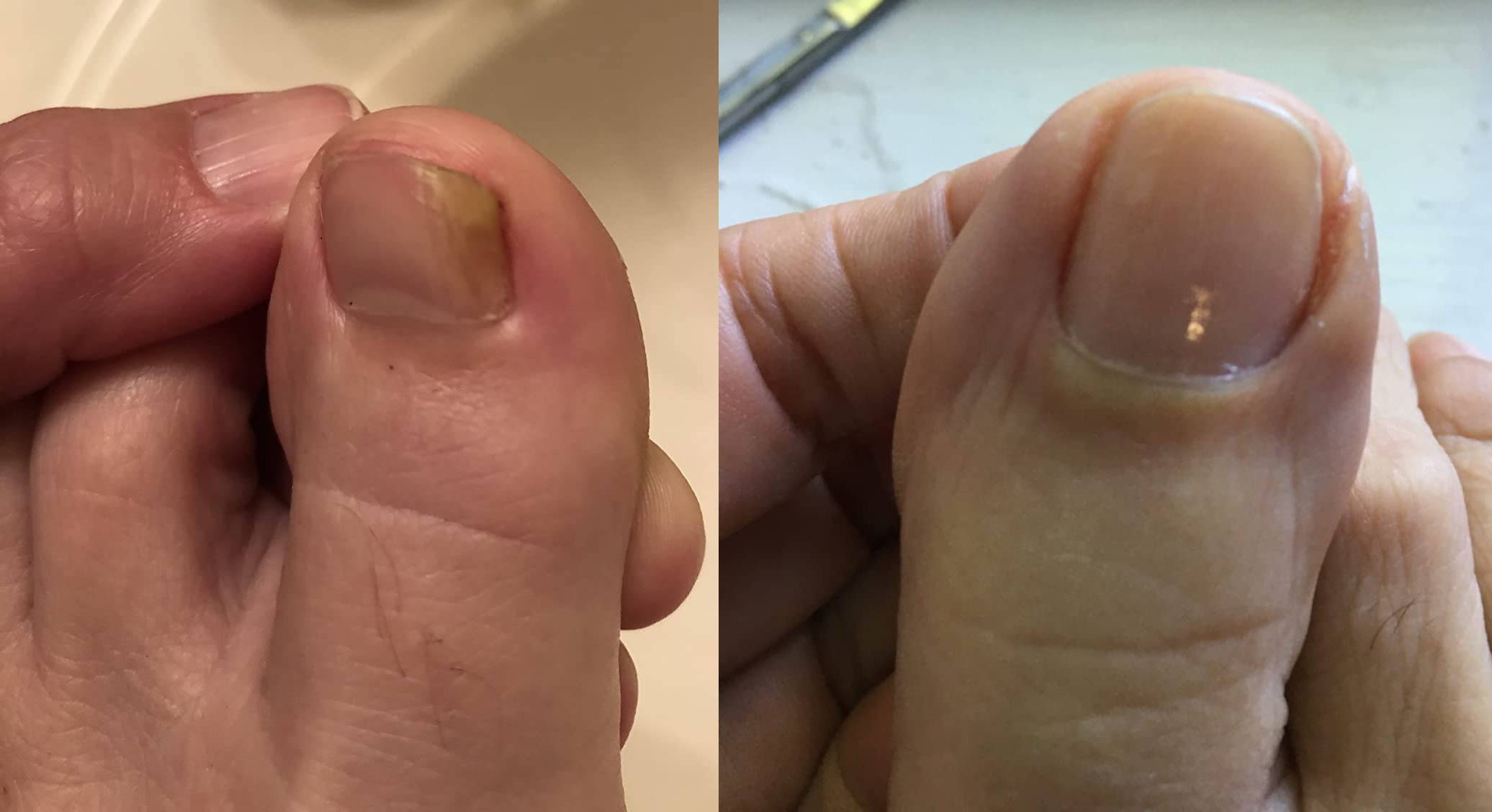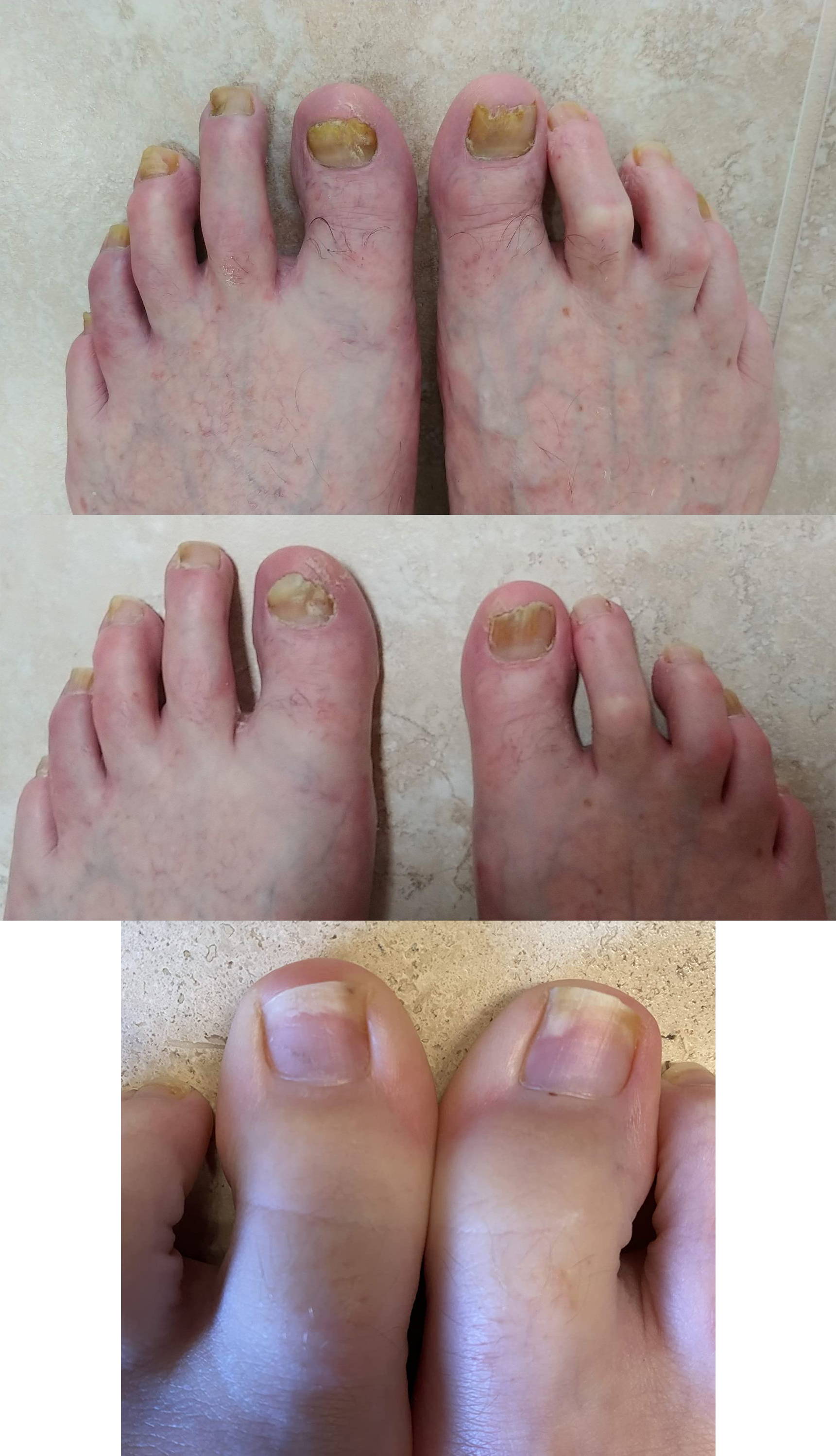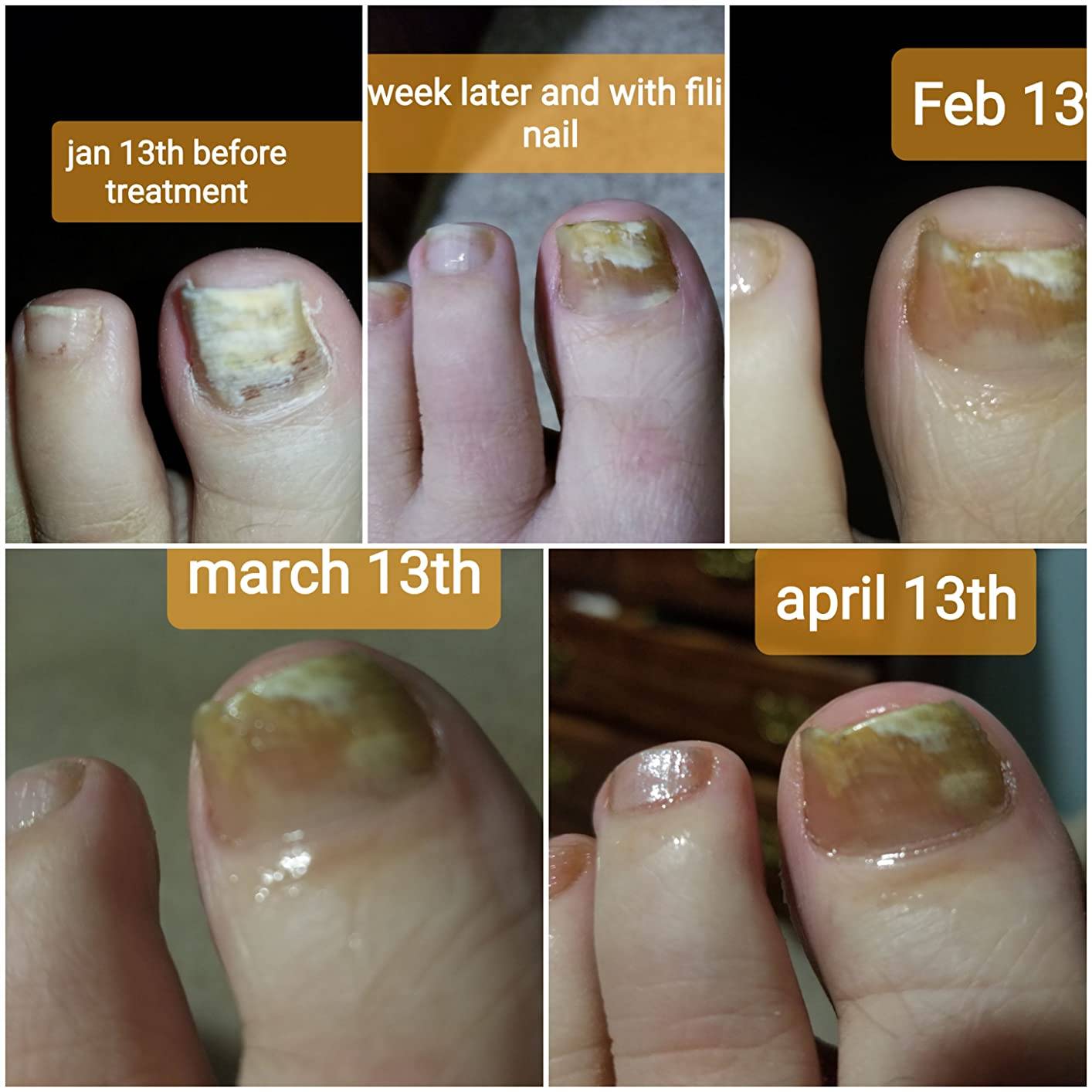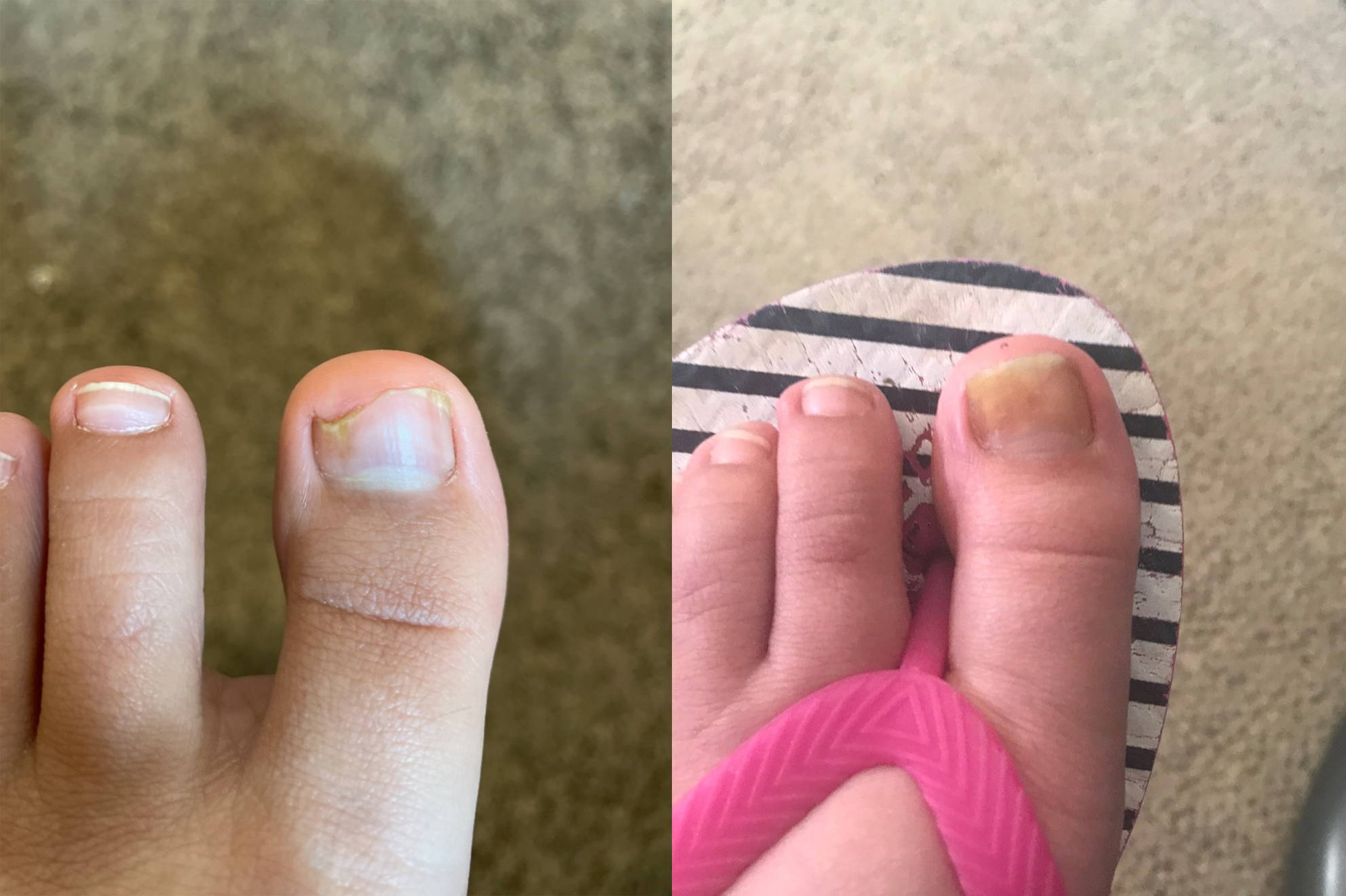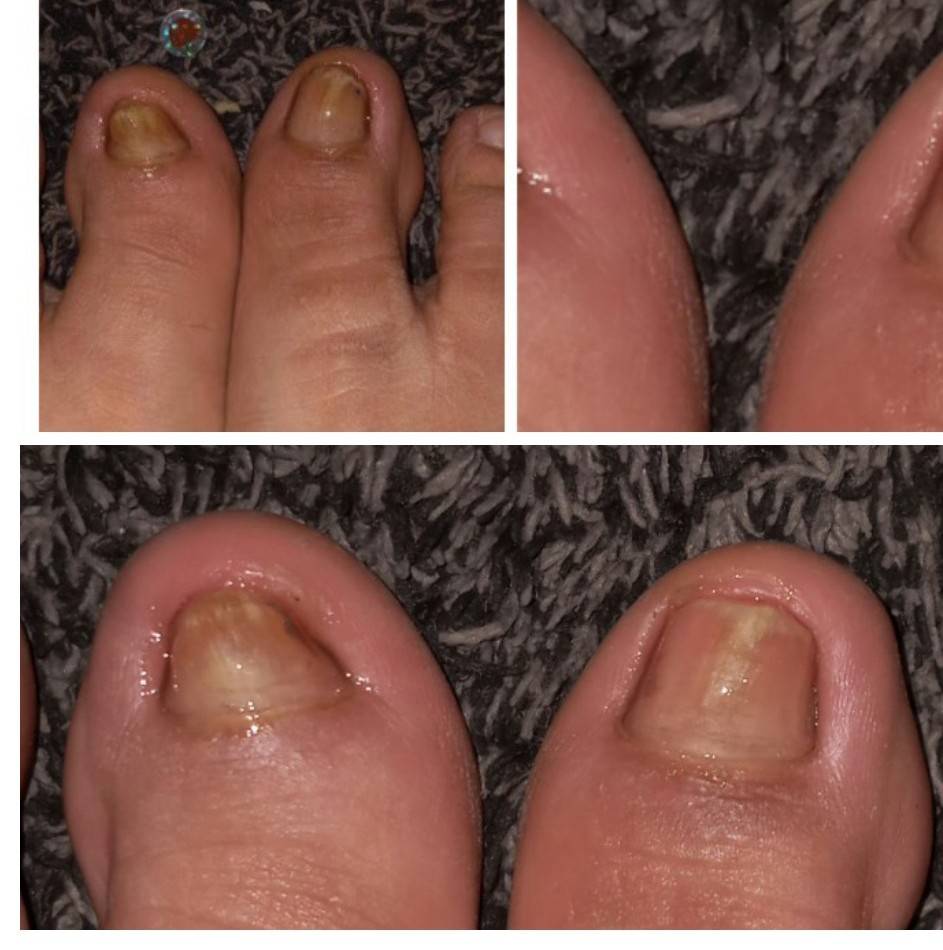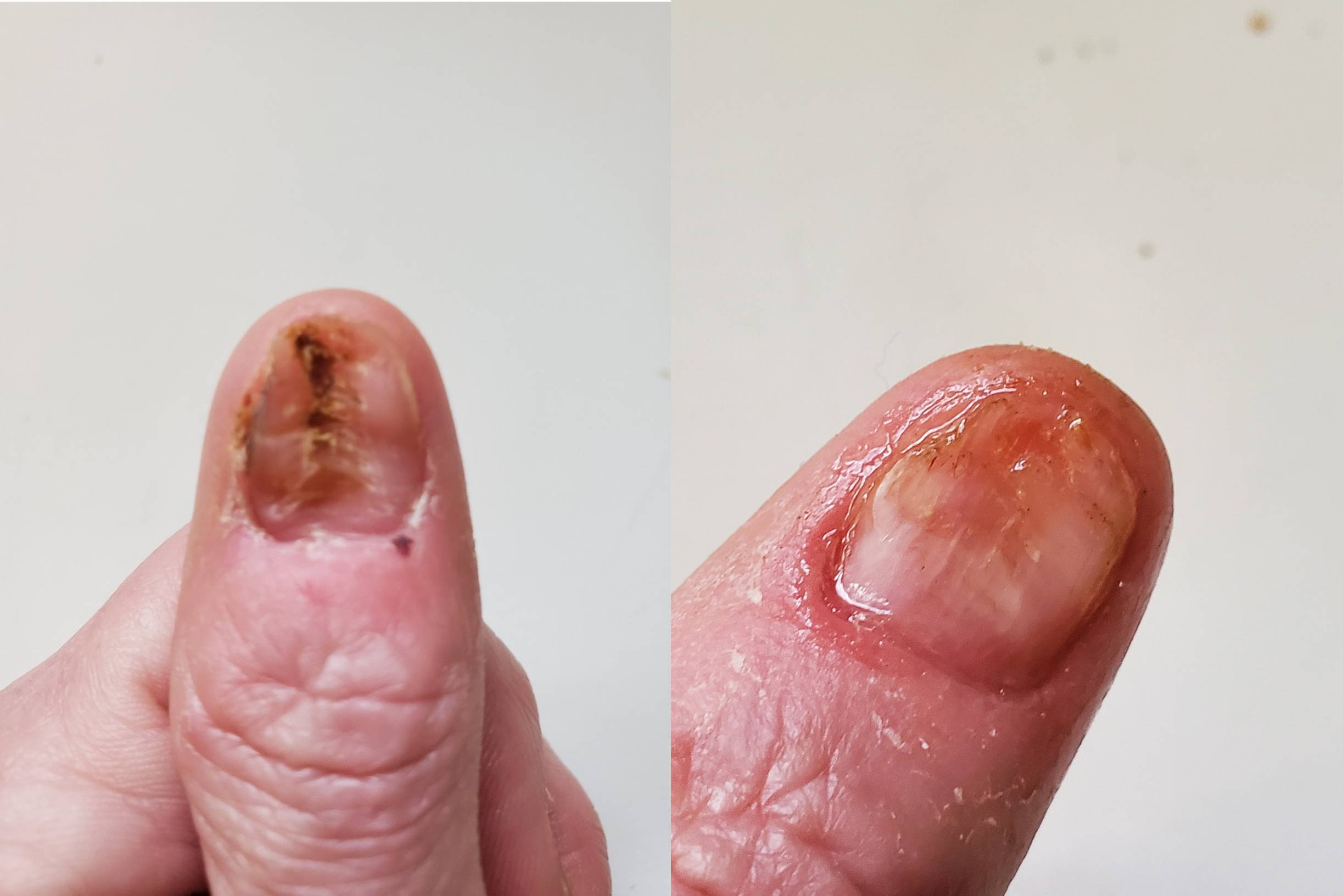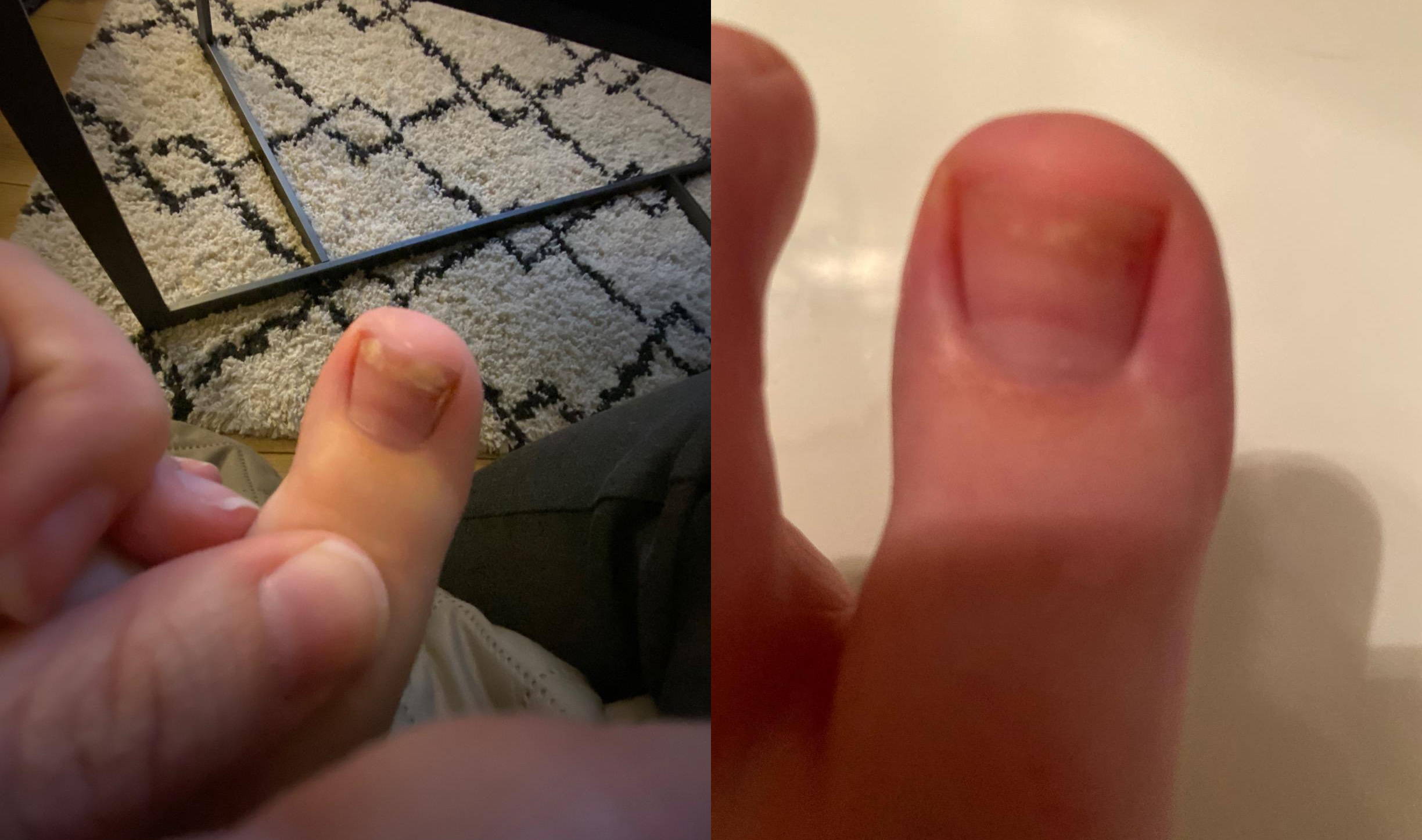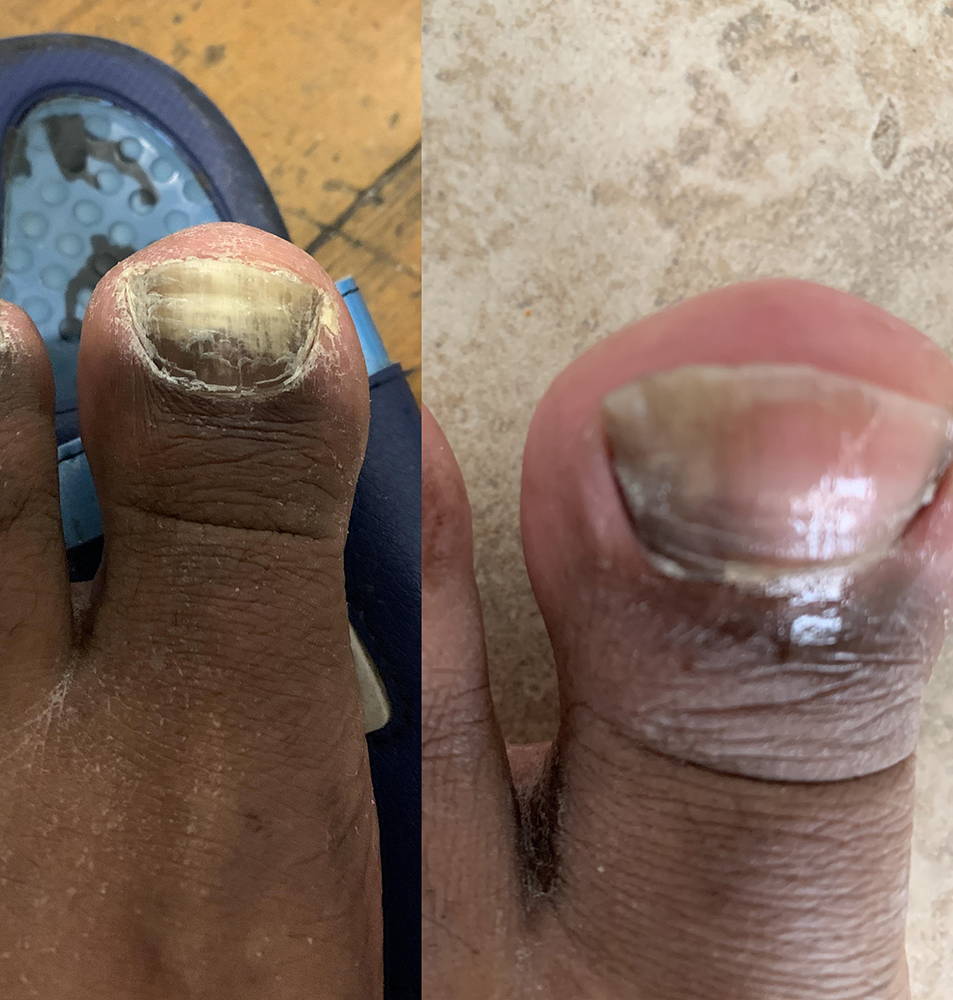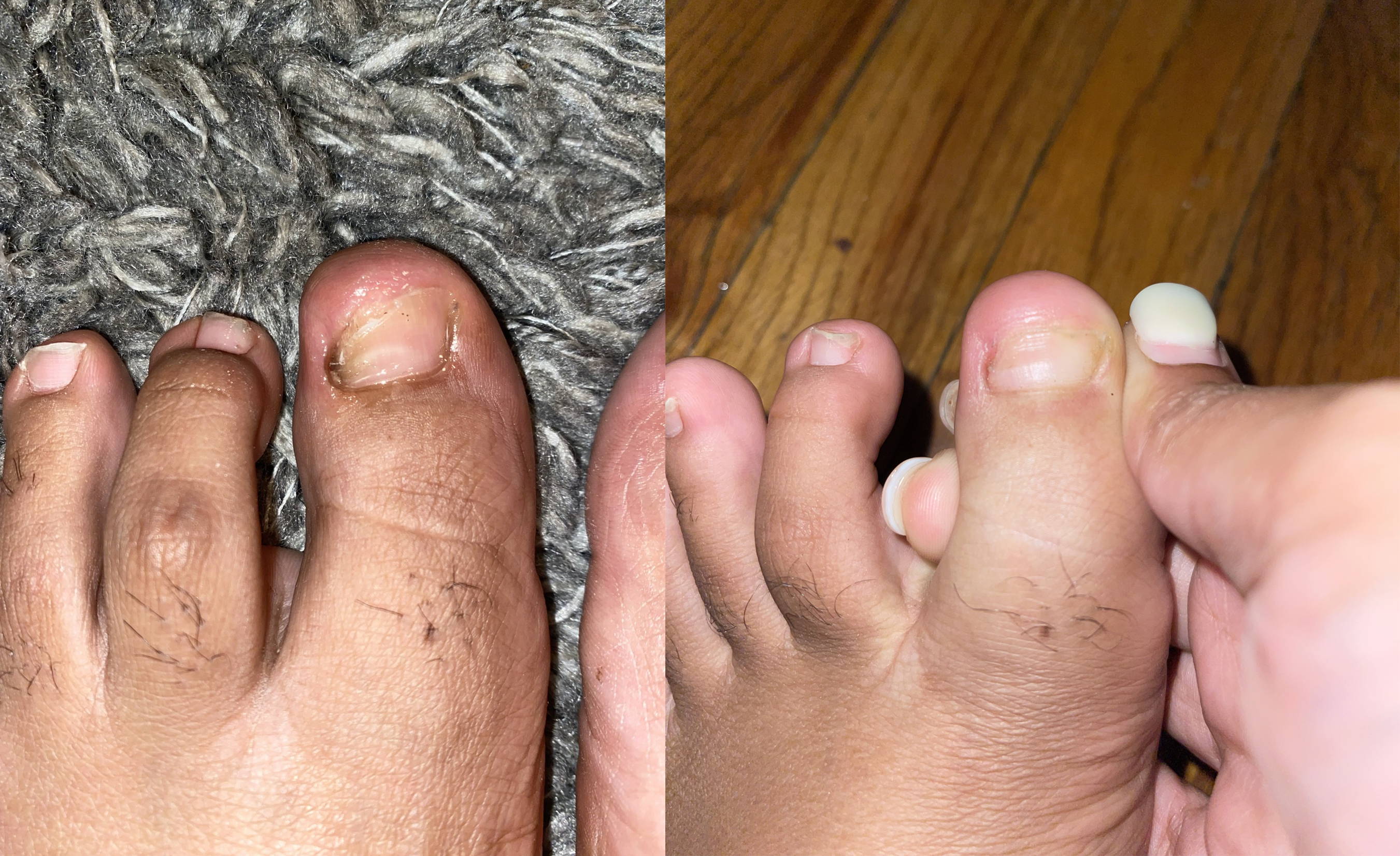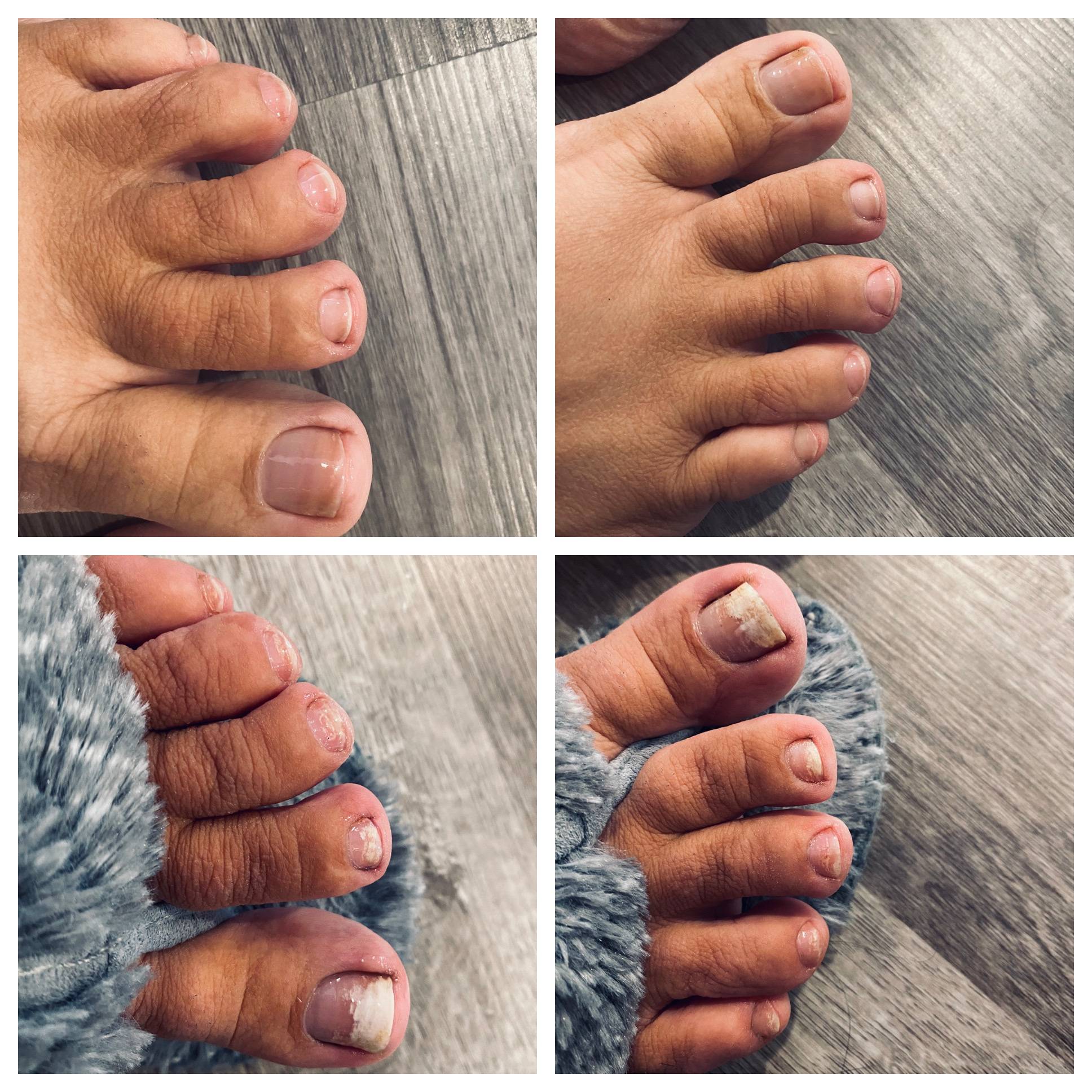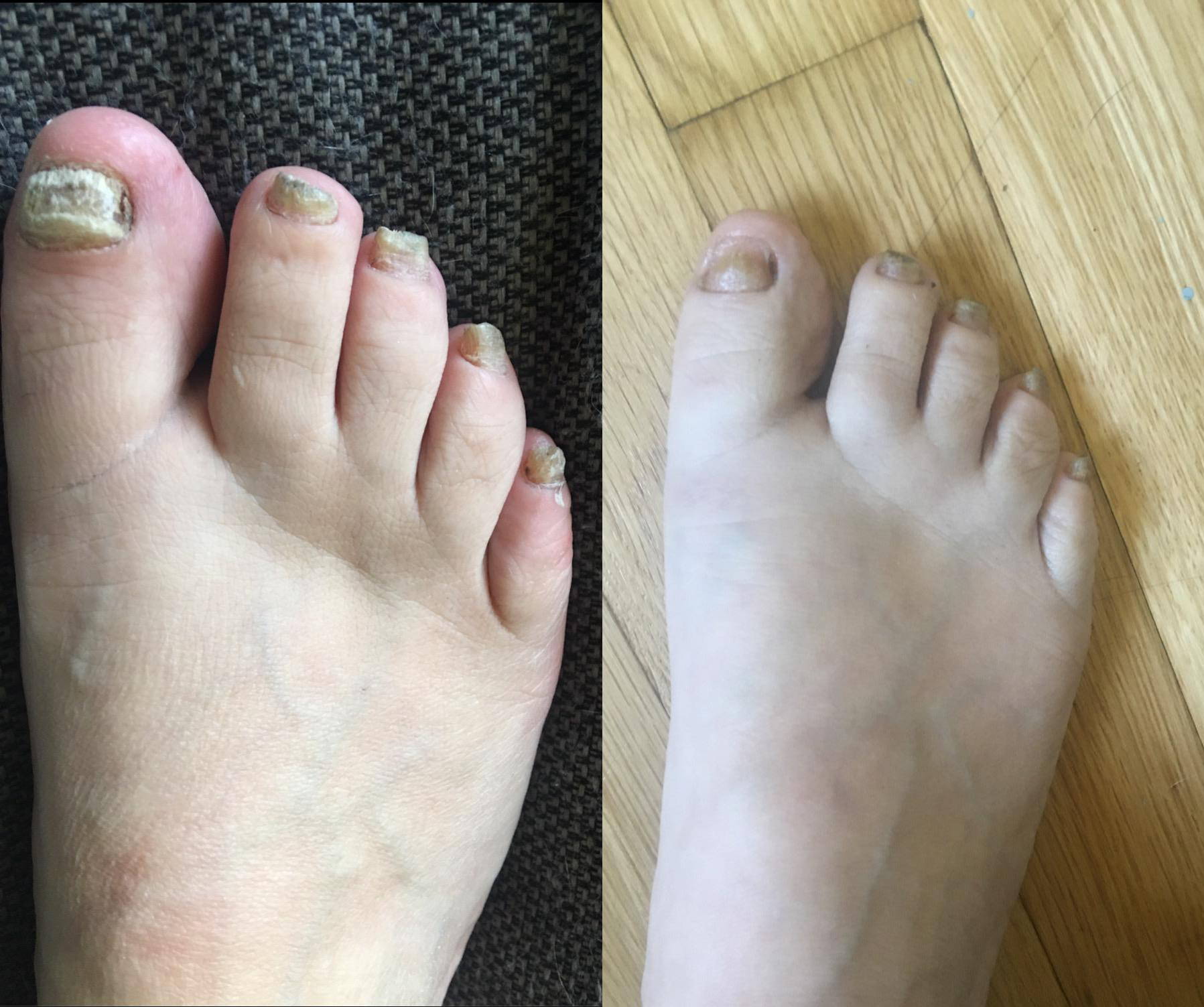Get to know
Onychom
Why laser?
Because it attacks the organisms not only on the top of the nail, but between the layers without damaging any skin or tissue - making this treatment much safer than other therapies that may cause irritation on top of the infection. With both pulsating soft lasers as well as antibacterial blue light delivered continuously you can get rid not only of nail fungus, but also its spreaders.
Featured review:
"I was kind of surprised when I realized that it only took 2 months to get rid of my toenail fungus! I was in between a mild and moderate phase, and after 1 month I could barely see fungus on my big toe."
Cecilia Goldberg

Two treatment modes to destroy fungus
Cold laser treatment mode
Laser beam wavelength:
905nm
Laser beam penetration:
5mm
Antimicrobial light wavelength:
470nm
Antimicrobial light penetration:
1 mm
Pulse duration:
No
Pulse treatment mode
Laser beam wavelength:
650nm
Laser beam penetration:
4,5mm
Antimicrobial light wavelength:
400nm
Antimicrobial light penetration:
1 mm
Pulse duration:
Yes
Cold laser treatment mode
Laser beam wavelength:
905nm
Laser beam penetration:
5mm
Antimicrobial light wavelength:
470nm
Antimicrobial light penetration:
1 mm
Pulse duration:
No
Pulse treatment mode
Laser beam wavelength:
650nm
Laser beam penetration:
4,5mm
Antimicrobial light wavelength:
400nm
Antimicrobial light penetration:
1 mm
Pulse duration:
Yes
As the base treatment for nail fungus, cold laser treatment's laser beam with 905 nm destroys fungus with a 5 mm deep penetration into the layers of the nail...
Pulse treatment mode is a great way to give your antifungal therapy an extra boost to make it more effective...
Be aware of the fungus you have and find the proper treatment
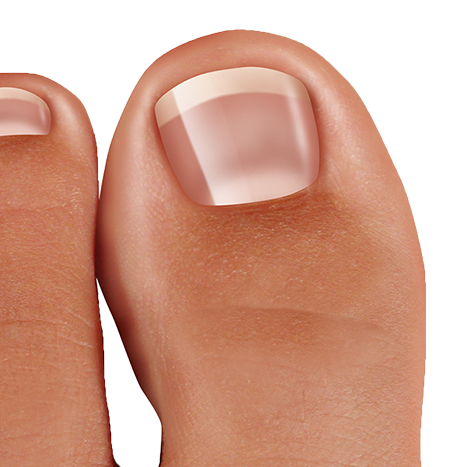 Prevention
Prevention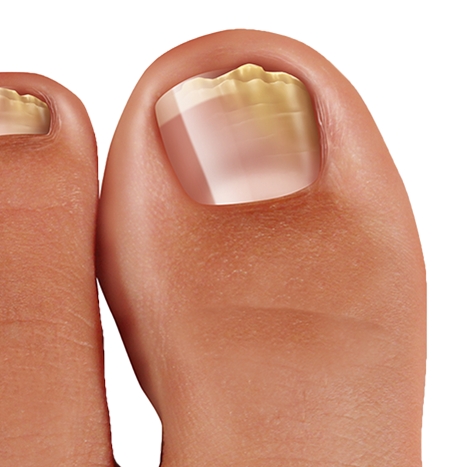 Mild
Mild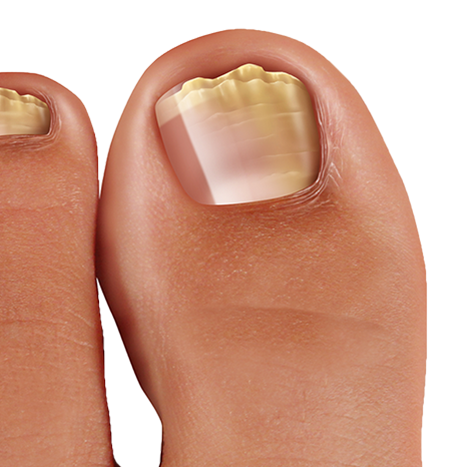 Moderate
Moderate Serious
Serious
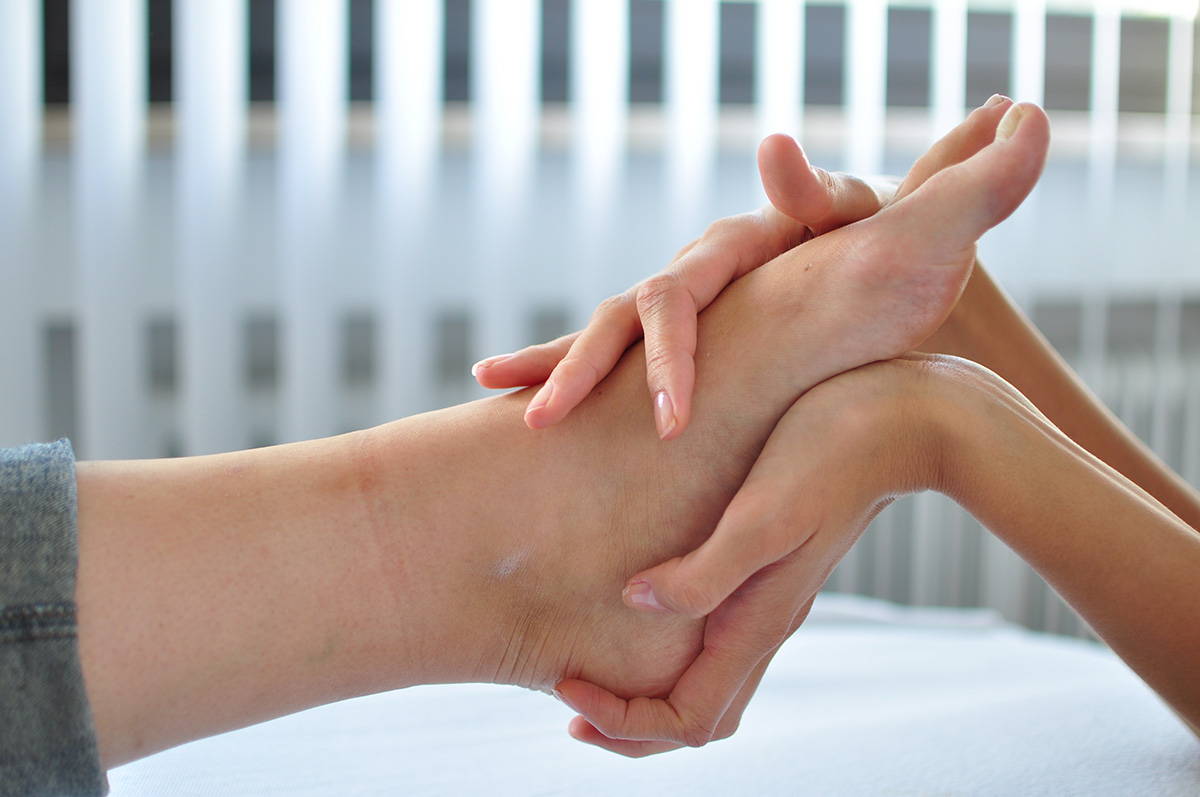
Prevention:
If your nails have just got healed, or you just would like to make sure that Onychomycosis will be not spread on your nails, use our most basic treatment, Cold treatment 1-2 times a week. The antimicrobial light and the infrared laser beam will kill every microbial cell within a 5 mm deep layer.
Solution*:
with Cold treatment
4
months
Cold treatment boosted with Pulse treatment
months
With a mild infection, use Cold treatment every day on the infected nails, and give a boost with Pulse treatment mode every 3rd day.
Common infections:

Distal subungual onychomycosis (DSO)
As the most common type of nail fungus, Distal subungual onychomycosis starts with infected skin under your nail bed. The condition begins either at the end of the nail or in the nail bed, and part of the nail often turns yellowish-whitish. If it stays untreated, the nail can be detached from the skin. As the nail thickens, wearing shoes can be painful - tight shoes can worsen the condition or even cause it.

White superficial onychomycosis (WSO)
WSO is the second most common type of all fungal nail infections (approximately 10% of all onychomycosis cases), and one of the easiest to cure. The nail stays thin, and the top layer gets powdery, with white colour.

Candidal onychomycosis / Yeast infection
Yeast infection is more common in fingernails than toenails. It spreads so fast that all of the nails will be infected within a short time, and in contrast to other fungal infections, Candidal Onychomycosis is quite painful. This specific type of onychomycosis firstly attacks the structures around the nail and after the nail itself, turning the structure to thick with whitish-yellowish or brown colors.
Solution*:
with Cold treatment
6
months
Cold treatment boosted with Pulse treatment
months
Just like with mild infection, use Cold treatment every day, and enhance the effectiveness of Onychom by using Pulse treatment mode every 2nd day.
Common infections:

Distal subungual onychomycosis (DSO)
As the most common type of nail fungus, Distal subungual onychomycosis starts with infected skin under your nail bed. The condition begins either at the end of the nail or in the nail bed, and part of the nail often turns yellowish-whitish. If it stays untreated, the nail can be detached from the skin. As the nail thickens, wearing shoes can be painful - tight shoes can worsen the condition or even cause it.

White superficial onychomycosis (WSO)
WSO is the second most common type of all fungal nail infections (approximately 10% of all onychomycosis cases), and one of the easiest to cure. The nail stays thin, and the top layer gets powdery, with white colour.

Candidal onychomycosis / Yeast infection
Yeast infection is more common in fingernails than toenails. It spreads so fast that all of the nails will be infected within a short time, and in contrast to other fungal infections, Candidal Onychomycosis is quite painful. This specific type of onychomycosis firstly attacks the structures around the nail and after the nail itself, turning the structure to thick with whitish-yellowish or brown colors.
Solution*:
with Cold treatment
9
months
Cold treatment boosted with Pulse treatment
months
For serious infections, use both treatments every day. Firstly, use Cold treatment, then turn on Pulse treatment mode on every infected nail.
Common infections:

Distal subungual onychomycosis (DSO)
As the most common type of nail fungus, Distal subungual onychomycosis starts with infected skin under your nail bed. The condition begins either at the end of the nail or in the nail bed, and part of the nail often turns yellowish-whitish. If it stays untreated, the nail can be detached from the skin. As the nail thickens, wearing shoes can be painful - tight shoes can worsen the condition or even cause it.

White superficial onychomycosis (WSO)
WSO is the second most common type of all fungal nail infections (approximately 10% of all onychomycosis cases), and one of the easiest to cure. The nail stays thin, and the top layer gets powdery, with white colour.

Candidal onychomycosis / Yeast infection
Yeast infection is more common in fingernails than toenails. It spreads so fast that all of the nails will be infected within a short time, and in contrast to other fungal infections, Candidal Onychomycosis is quite painful. This specific type of onychomycosis firstly attacks the structures around the nail and after the nail itself, turning the structure to thick with whitish-yellowish or brown colors.

Proximal subungual onychomycosis (PSO)
PSO is a common condition associated with HIV or AIDS. PSO begins from the proximal nail fold, thickens the skin and results in a white discoloration under the nail bed.
*The information provided about Onychom is only for educational purposes and does not substitute for professional medical advice. Please consult a medical professional or healthcare provider if you're seeking a diagnosis or treatment for nail fungus.
Why choose Onychom?
Onychom provides a painless and effective solution for nail fungus
without any side effects and harmful chemicals.
Drug-Free Alternative
Onychom provides a painless and effective solution for nail funguswithout any side effects and harmful chemicals.
The best value at a low cost
Despite laser therapy is proven to be the most effective treatment for nail fungus, the National HealthCare doesn’t cover it, therefore, it can cost a fortune for anyone. Onychom is a one-time investment for an infinite time of usage, with a 180-day money back guarantee.
Remedy at anytime, anywhere
Onychom does not baffle your daily routine - just clip it on your toe or finger, leave it on until the 7-minute timer ends, use whenever and wherever you want it!
Treating nail fungus from the comfort of your own home has never been so advanced. Onychom targets fungus with two treatment modes on four different wavelengths. The digital display always shows how much time is left and which treatment mode you choose.
How to use Onychom?
1.
2.
3.
cold laser treatment or pulse treatment
4.
+1.
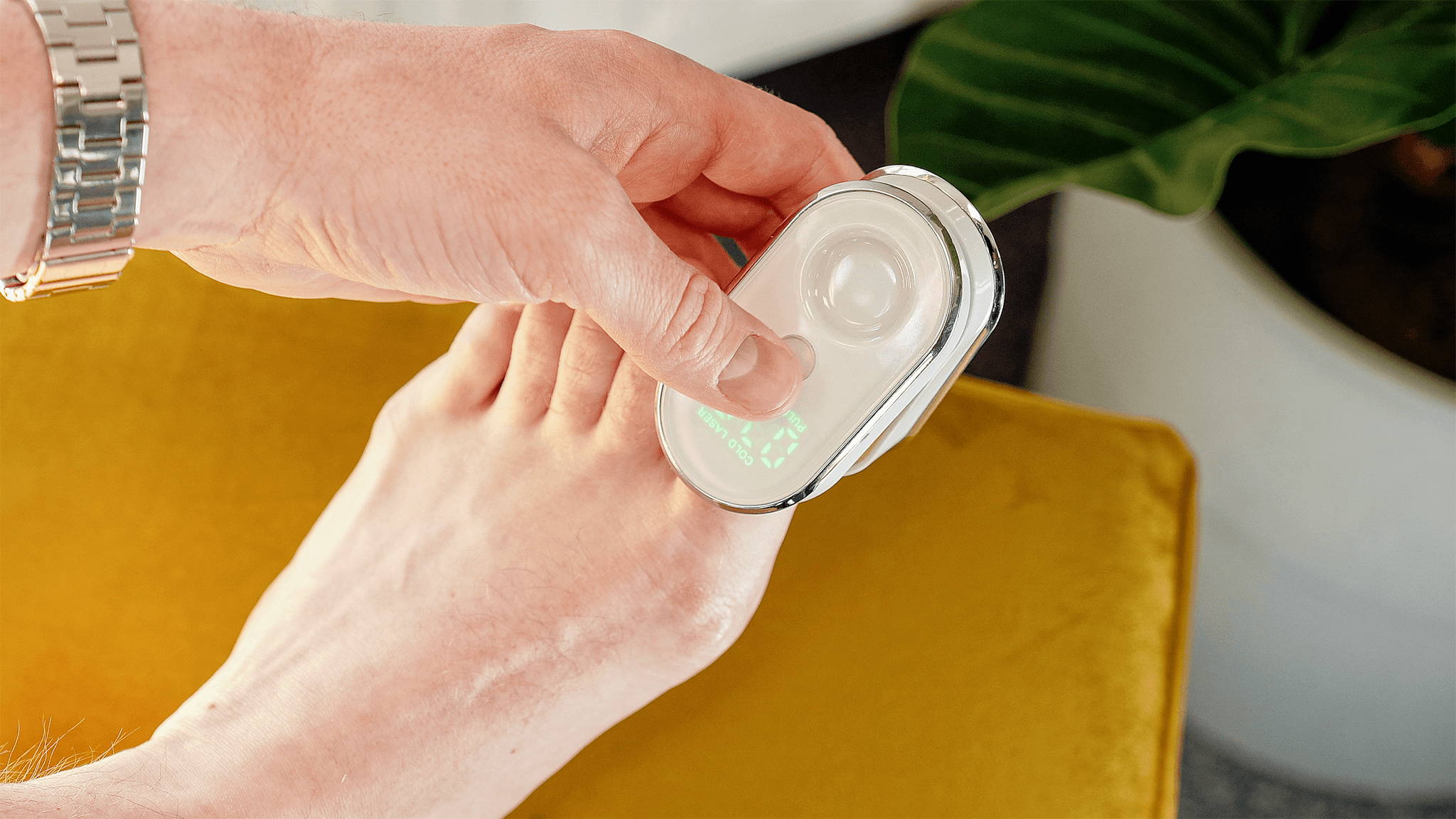
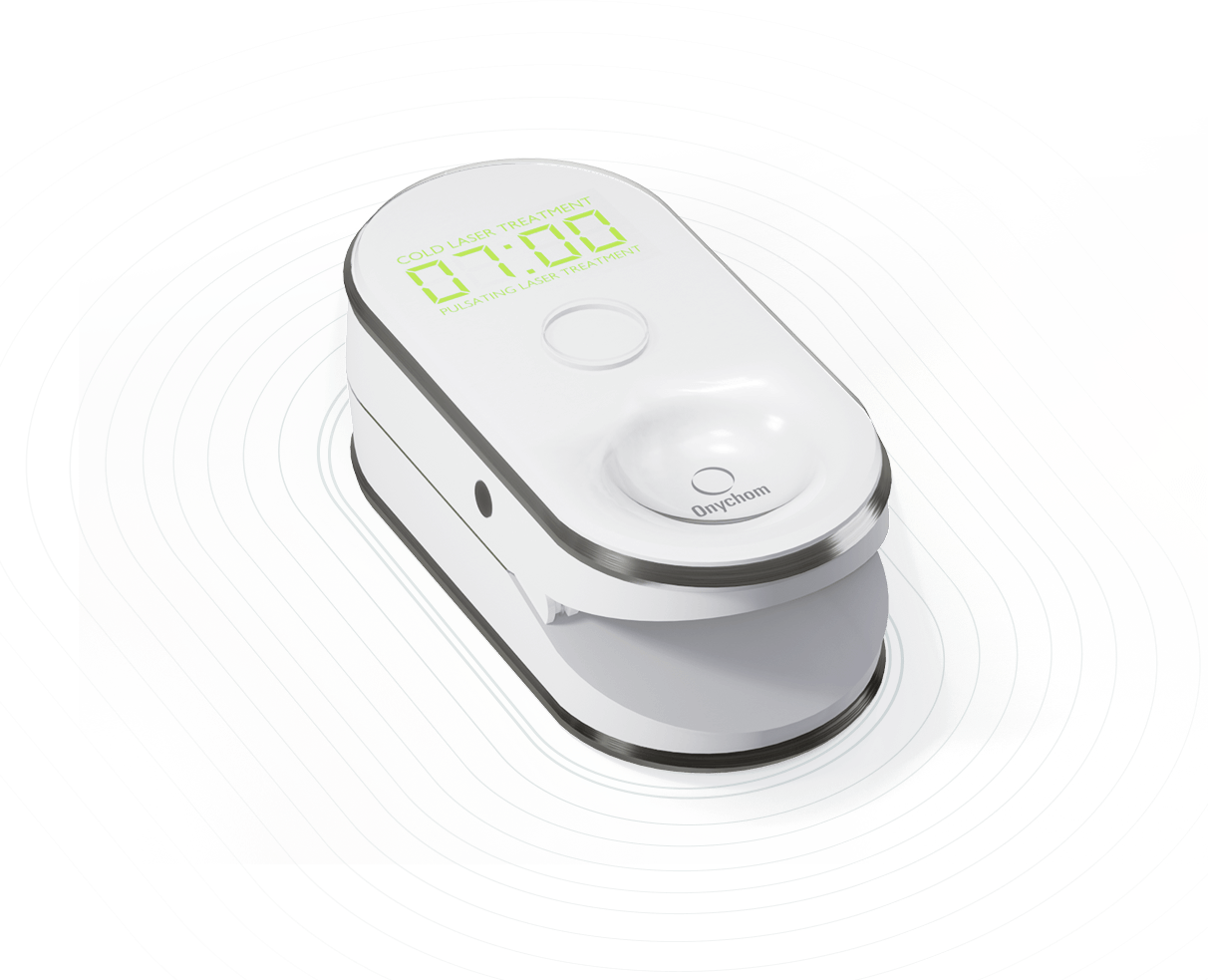
Topical antifungals (like ciclopirox) are used for managing minor infections of the nail plate. While topical antifungals have the advantage of causing fewer and less serious side effects, treatment periods are long, and efficacy is limited due to poor nail plate penetration. Clinical trials have shown newer topical agents are significantly superior to placebo. However, further comparative trials are required to determine their relative clinical efficacy and provide more effective recommendations for patients.
Oral treatments are required for most cases of onychomycosis because of their greater ability to penetrate the nail bed and nail plate. Common side effects of these medications include headaches, gastrointestinal symptoms, nausea and rash.
By combining two technologies, the precisely directed soft laser and blue light therapy eliminate the fungus without any undesirable effect. It doesn’t harm the surrounding nail tissue, totally painless, and takes only 7 minutes per nail.

Give yourself the most advanced at-home
laser treatment
for nail fungus:
- suits all finger types
- short treatment time
- minimal discomfort
- continuous improvement
- no risk, no pain
- no side-effects

What's in the box?
- Onychom
- Charger
- User's manual

Frequently asked questions
Why can't I see the infrared laser beam at cold laser treatment?
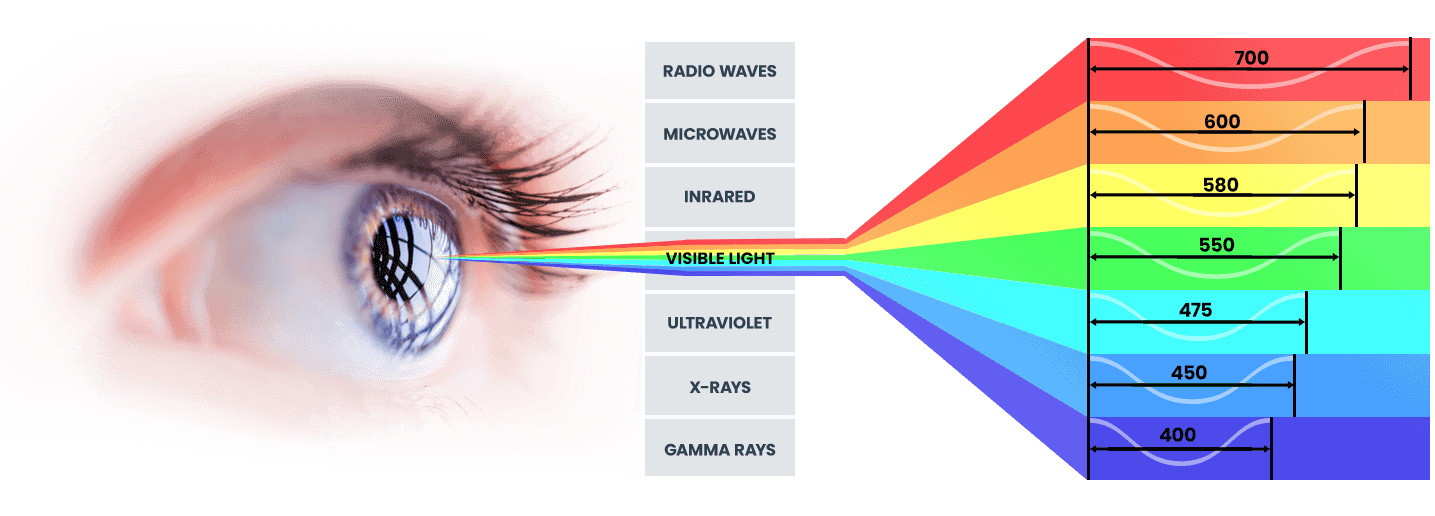
905 vs 650 nm laser beam
We’ve received much feedback that our users can see nothing but the antimicrobial light at cold treatment mode and no red laser beam. Typically, the human eye can detect wavelengths from 380 to 700 nanometers, and the infrared laser beam featured in cold laser treatment is 905 nm (using an IR illuminator would make it visible). That’s why we only see blue light when our nails are treated at cold laser treatment mode.
Your feedback is important!
To help our users see what they are doing more clearly, we decided to add an extra laser beam at one of the last visible wavelengths: 650 nm.
Destroys parasites, viruses, bacteria, fungi, yeast on a deeper layer
Kills bacteria, fungus and mold
Stimulates lymphocyte production
Regulates melatonin production
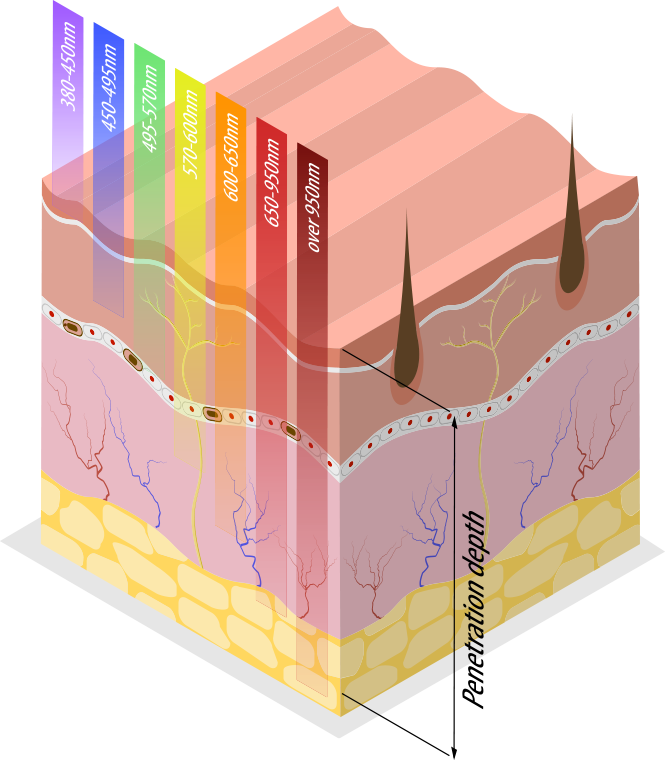
How many times a day can I use Onychom?
It is recommended to use Onychom two times per day for 7 minutes / nail. Please respect the recommended dosage.
How to use Onychom?
Onychom is very simple to use. By 3+1 easy steps, you can get rid of nail fungus in the most effective way:
1. Clip it on your finger
2. Turn on the device
3. Choose your treatment
4. Leave it on for 7 minutes
+1. Keep your day going
How does laser treatment work?
Under the 7-minutes-long session with Onychom, many thousands of laser pulses enter the nail to destroy the fungus. The laser beam destroys the structure of the fungus and kills it permanently. The 905 nm focal wavelength of Onychom only tracks the fungus, so that it does not cause any harmful side-effect neither on the skin, nor the internal body.
How does antibacterial blue light function?
Parallel to the pulsating soft laser, a continuous antibacterial blue-light therapy with 465 nm inhibits fungal growth, making sure that onychomnycosis won’t spread. Due to the photoactive porphyrincs, blue light disinfects everything that the light touches and kills fungus, bacteria and viruses regardless their antibiotic-resistance status.
Is Onychom pain-free?
Using Onychom is absolutely pain-free, without any side-effects.
How long should I wait to see the results?
Since nail fungus is a stubborn condition, it depends on how heavy the infection is. If you use it regularly, within 2-3 months, the results can be seen.
Who can use Onychom?
Onychom can be used by anyone who has nail fungus - children can also use it under parental control.



